Natural Sciences
Commemorating World Fisheries Day – Stakeholders call for more Investment in Fish Farming
Published
4 years agoon
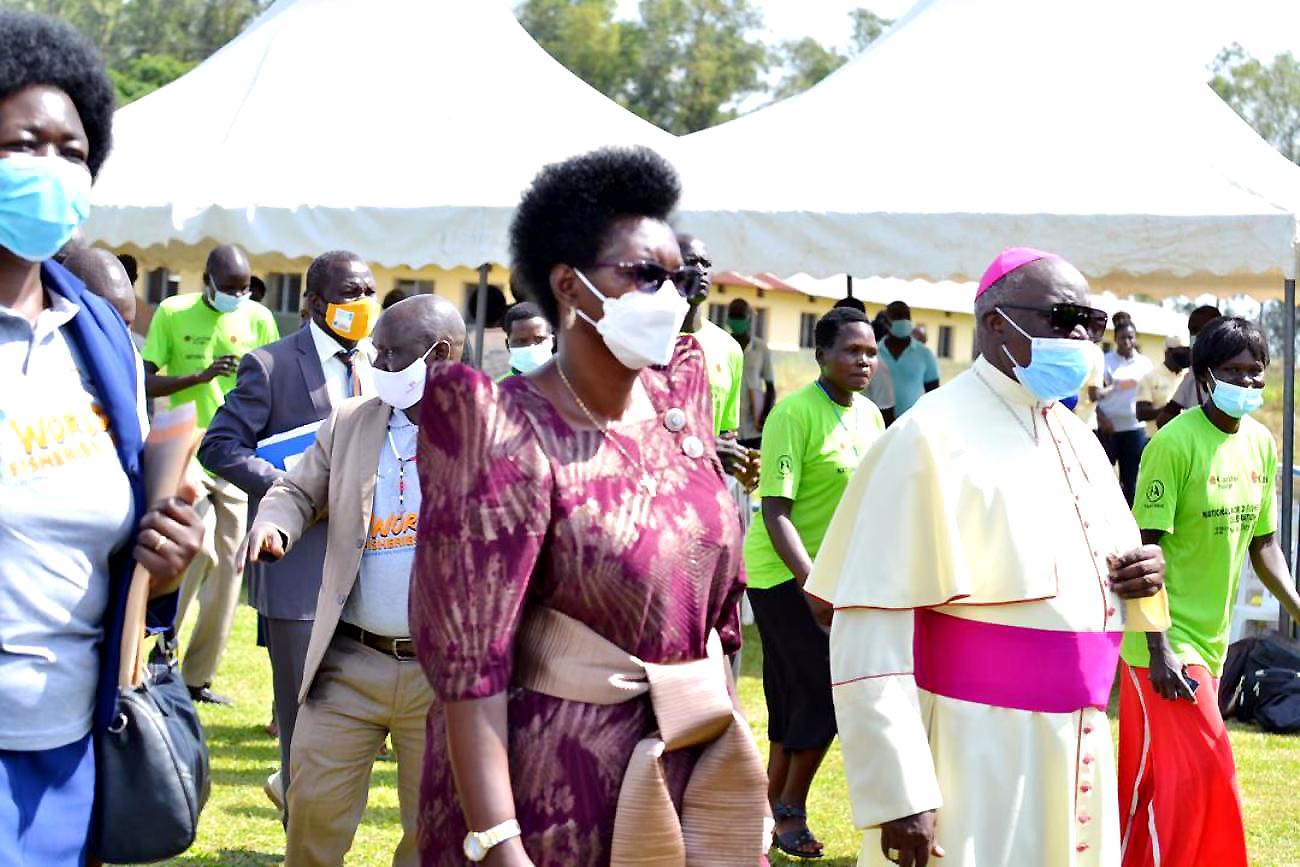
Theme of the 2021 World Fisheries Day celebrations:“Recognizing and Supporting the Contribution and Sustainable Development of Small Scale Artisanal Fisheries and Aquaculture”
The World Fisheries Day celebrated on 21st November annually presents an opportunity for stakeholders in the fishing industry to reflect on the state of Fisheries resources.
On 22nd November 2021, Uganda joined the rest of the world to commemorate the day. The celebrations to mark the day were held at St. Isidoro (Negri) Bar-Dege, Layibi Division in Gulu City. The event was presided over by the Minister of State for Fisheries, Hon. Hellen Adoa and attended by major actors in the fisheries industry in Uganda as well as political and religious leaders from Gulu District.
Highlighting the achievements and challenges faced by the fisheries sector globally, participants expressed concern over the continued depletion of fish from water bodies as a result illegal and unregulated fishing methods.
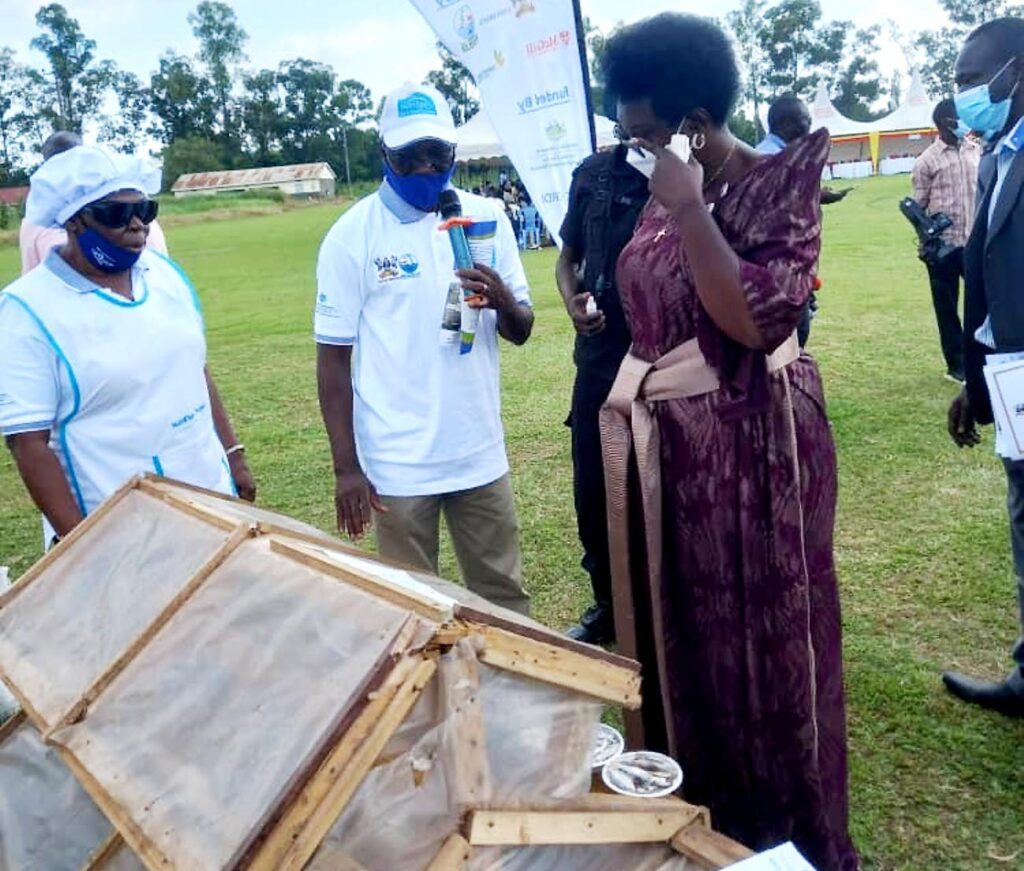
Addressing participants, the Minister of State for Fisheries, Hon. Hellen Adoa called for more investment in fish farming to salvage the industry. “The fishing sector is faced with numerous challenges. The persistent use of illegal fishing gears and methods has resulted in catching and processing of immature fish. This has led to the decline of fish stocks reducing fish catches and consequently undermining the contribution of the sector to the economy,” she explained, calling on the general public to embrace aquaculture.
“Uganda is well endowed with water resources, good climate and raw materials for the production of fish feeds. With all these, we are well positioned to undertake aquaculture. Aquaculture can be practiced on commercial scale, in ponds, tanks and cages and has great potential to fill the gap created by the declining fish catches from natural water bodies. It also has potential to provide employment,” she noted.
The Minister acknowledged the support rendered by various actors towards the development of the fishing industry, one of the country’s major foreign exchange earners.
Emphasizing the contribution of the Fisheries Sector to the economy, the Director Fisheries at the Ministry of Agriculture, Animal Industry and Fisheries (MAAIF), Ms Joyce Ikwaput Nyeko called for concerted efforts to address the challenges affecting the industry.
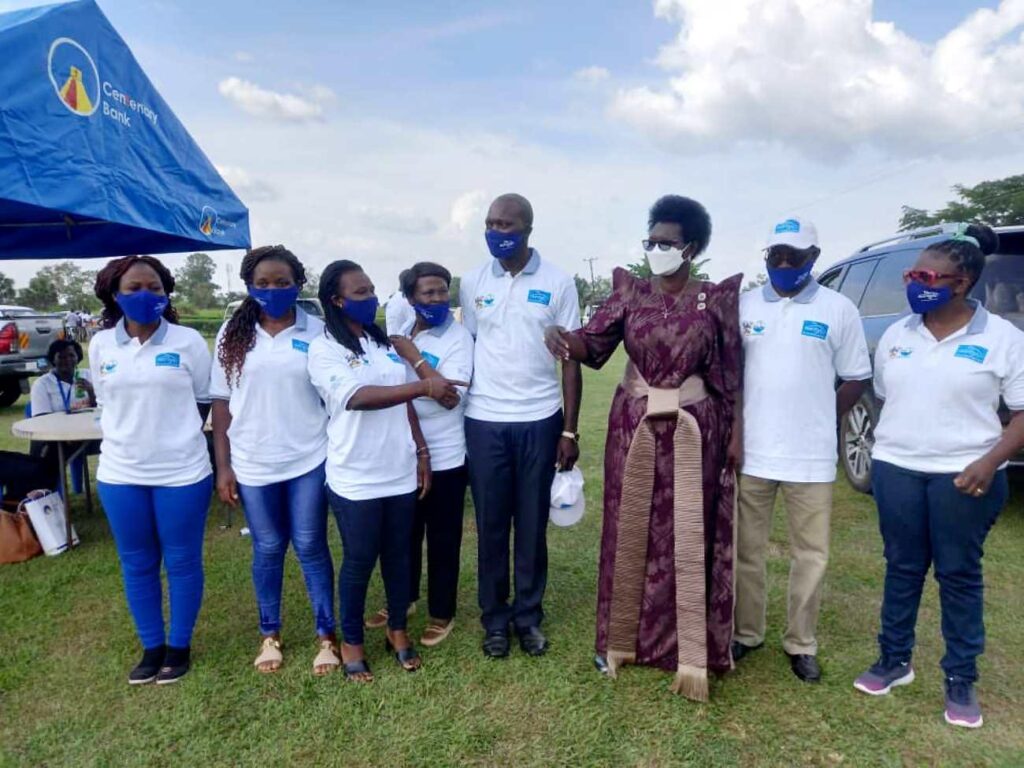
“Uganda is blessed with a lot of water resources with 20% of our surface area covered by lakes, rivers, swamps, and has potential to provide 1.7 million tonnes from both aquaculture and capture fisheries. This is however undermined by numerous challenges including unregulated fishing, lost fish habitats and global warming. This calls for drastic interventions to sustain the industry,” she said.
Currently, Uganda exports fish worth USD 177 million and is second to coffee in foreign exchange earnings from non-traditional exports. The fishing industry in Uganda provides employment to 1.2 million people and supports 5.3 million people. Besides the commercial benefits, fish and fisheries products play an important role in food and nutritional security around the world.
Representing Hauge Aqua, Dr. Ronald Semyalo, a Lecturer at the Department of Zoology, Entomology and Fisheries Sciences, College of Natural Sciences, Makerere University called for more training and skilling of youth in Fisheries and Aquaculture as a measure to minimize unemployment. The Department of Zoology, Entomology and Fisheries Sciences, Makerere University supports training in fisheries and aquaculture at various institutions in the country.
Exhibitions
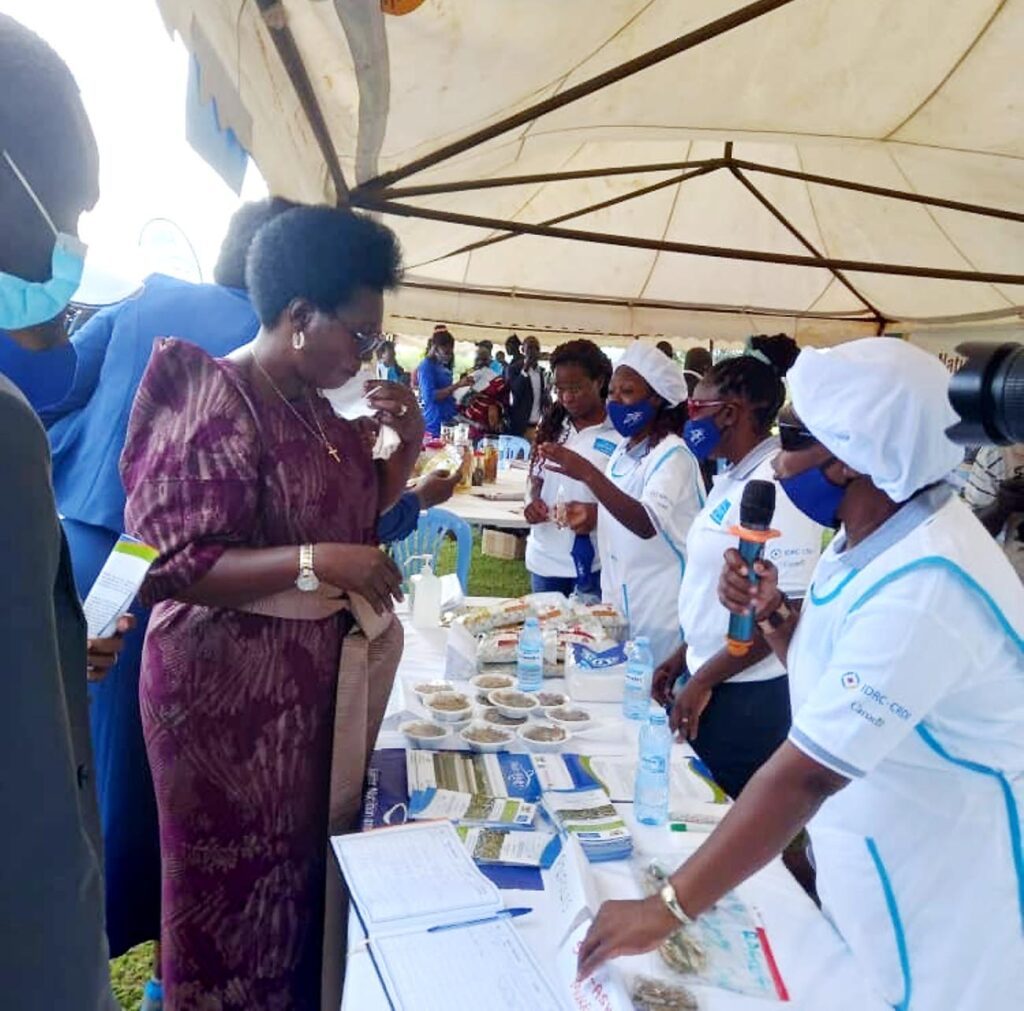
As part of the activities to mark the day, key stakeholders in the fishing industry including the Ministry of Agriculture, Animal Industry and Fisheries; the National Agricultural Research Organization (NARO); NutriFish Uganda; and the National Fisheries Resources Research Institute (NaFIRRI) showcased some of their products.
Exhibition by NutriFish Uganda
Supported by the International Research Development Centre (IDRC) and the Australian Centre for International Agricultural Research (ACIAR) through their joint programme, Cultivate Africa’s Future Fund (CultiAF), NutriFish aims to address the nutritional needs of vulnerable groups that cannot afford expensive commercial fish but are in critical need of high quality nutritious diets.
As key stakeholders in Uganda’s fishing industry, the project team led by Dr Jackson Efitre actively participated in the exhibition to mark World Fisheries Day in Gulu City. At their stall, the researchers showcased some of their products from small pelagic fish, actively engaging and explaining to participants the nutritional benefits and the product flow process of the fish. Some of the products showcased included, composite flour enriched with mukene (silver fish), Baghia from Nile Perch, fish sauce with mukene, instant porridge enriched with mukene, fish seasoning with mukene, mukene snack and the solar tent drier.
Graduation Ceremony – Award of a Certificate in Community Aquaculture, Level 1
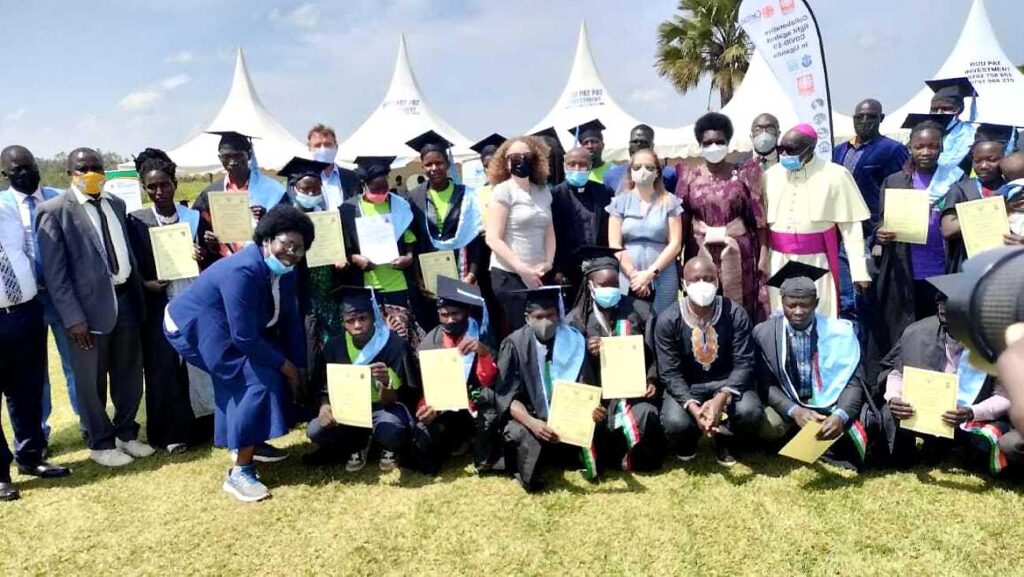
During the ceremony, 100 students from two community aquaculture schools in Arivu, Arua District and at St. Isidoro Farm in Gulu District graduated with a Certificate in Community Aquaculture, Level 1. The graduation ceremony was presided over by Gulu Archdiocese Archbishop, His Grace John Baptist Odama.
The two schools were established with support from Caritas International as part of the contribution of the Catholic Church towards the development of aquaculture in Uganda, and eradication of poverty and hunger in line with sustainable development goals 1 and 2. The project aims to uplift the lives of the vulnerable and unemployed youth and women through creating skills in fish farming, entrepreneurship, and cooperatives for marketing products in the fish value chain. To date, 1,051 students have completed training at these schools.
In his remarks, the National Director, Caritas Uganda, Msgr. Dr. Francis Ndamira appreciated the support rendered by Makerere University Department of Zoology, Entomology and Fisheries Sciences towards the training of students.
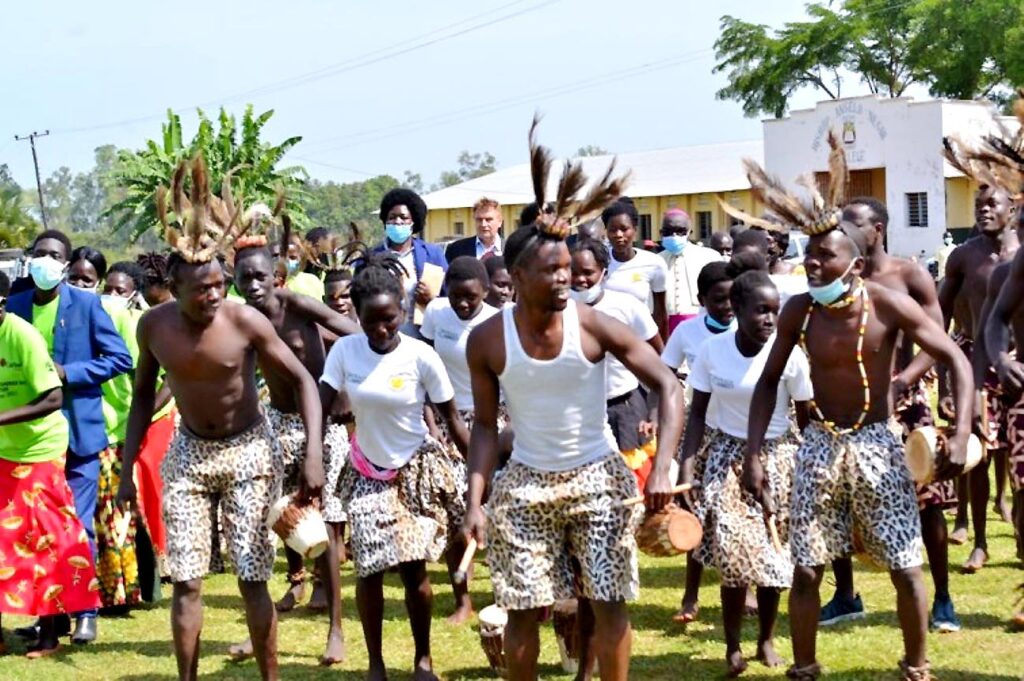
You may like
-
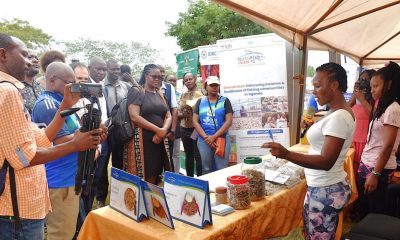

Jinja Fish Festival: Mak Recognized for its outstanding contribution to the Development of the Fisheries Sector
-
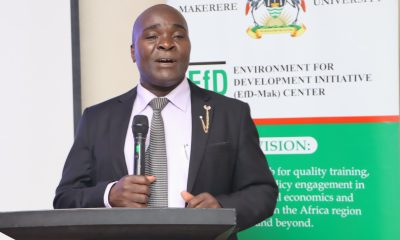

EfD, MDAs & Private Sector Strategize on Scaling up the Adoption of Climate Smart Agriculture in Uganda
-


Trees That Still Give Shade: Celebrating the Life and Impact of Prof. Tumusiime-Mutebile
-
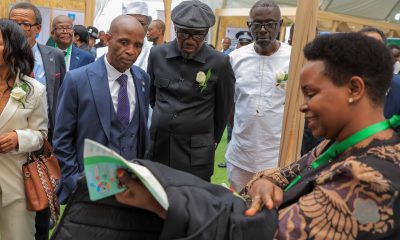

How transformative education is shaping Africa’s next generation of innovators
-
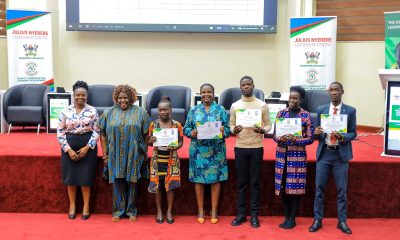

From Vision to Action: Five JNLC–UNDP Alumni Innovations Win Seed Funding
-
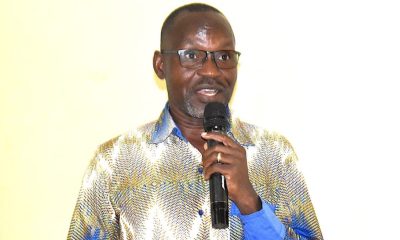

Mak-CoNAS Launches NutriFishPlus Project
Natural Sciences
Jinja Fish Festival: Mak Recognized for its outstanding contribution to the Development of the Fisheries Sector
Published
6 days agoon
December 8, 2025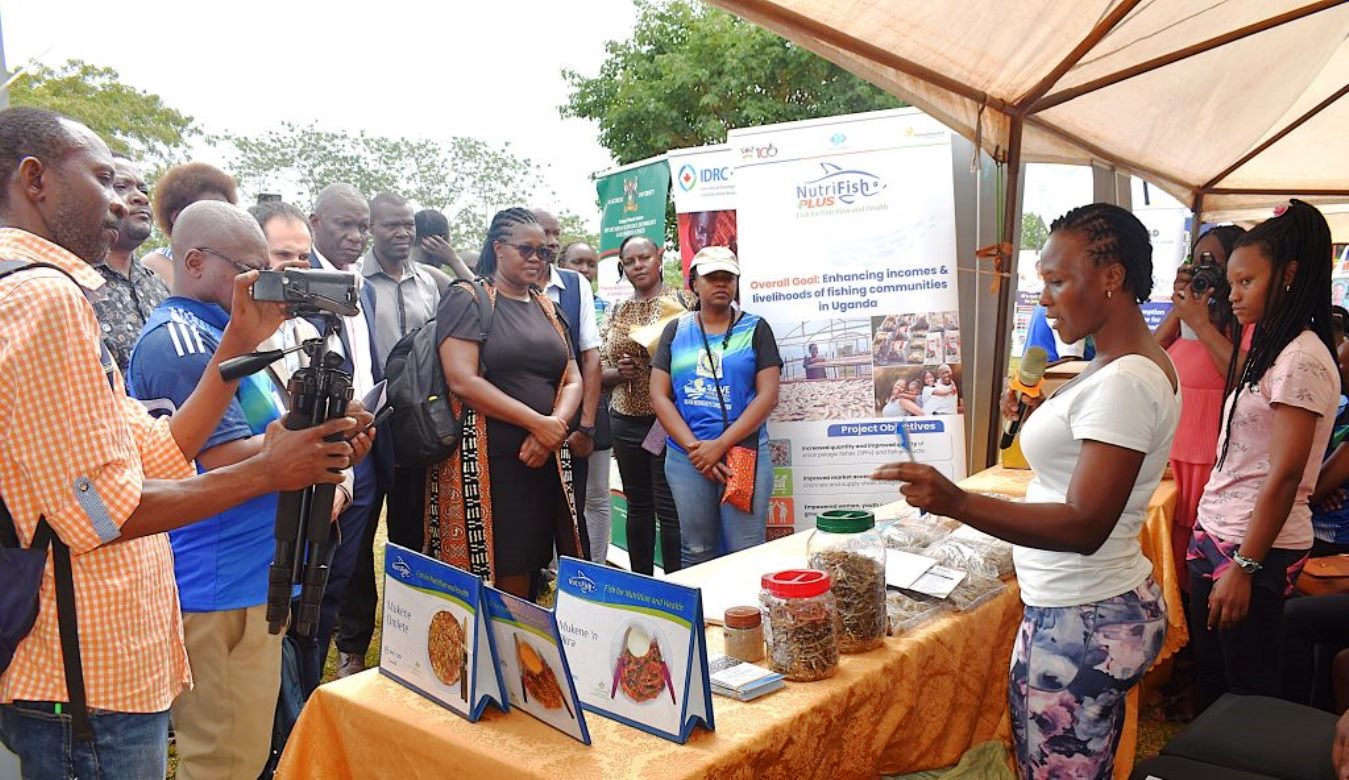
Makerere University, through the College of Natural Sciences (CoNAS), has been recognized for its outstanding contribution to the development of the fisheries sector in Uganda. The award was presented during the Sustainable Fisheries, Aquaculture, and Environmental Awards Ceremony at the 7th edition of the Jinja Fish Festival, held on 6th–7th December 2025 at Across the Nile Resort, along the banks of the River Nile in Njeru Municipality.
Renowned for showcasing diverse fish cuisines and cultural exhibitions, this year’s festival aimed to promote knowledge exchange, raise awareness, and highlight recent developments around Lake Victoria.
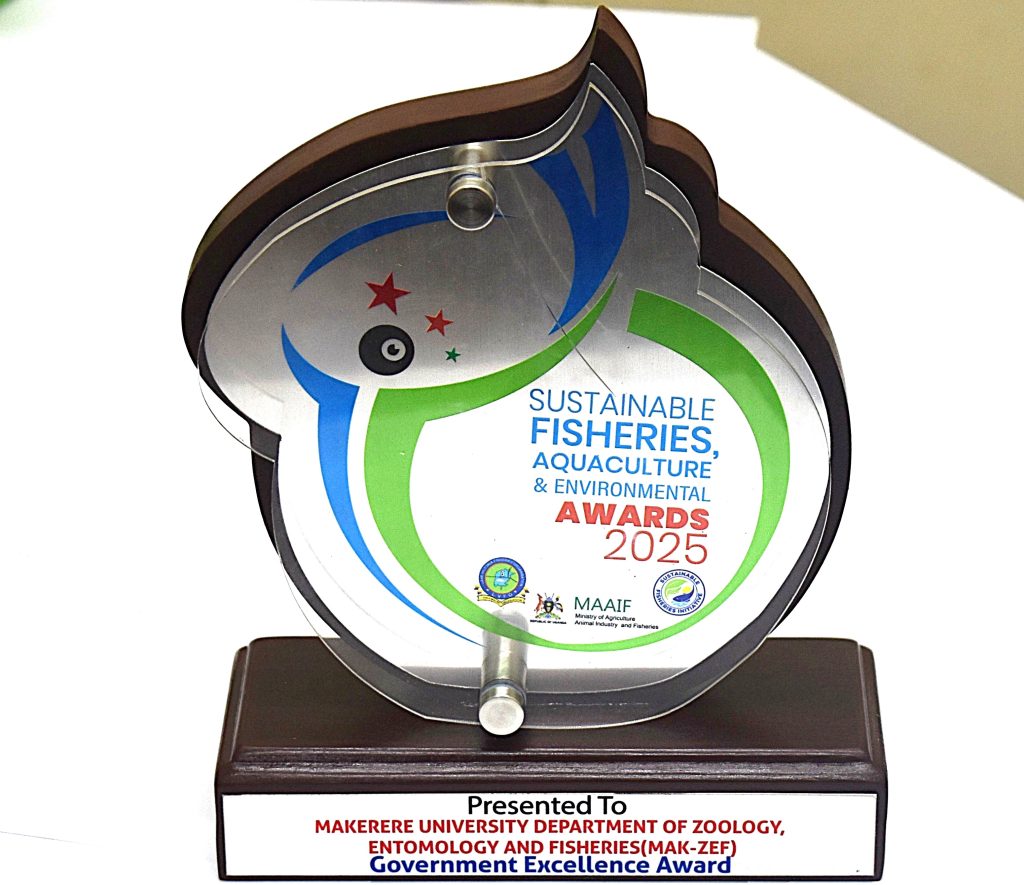
Launched in 2018, the Jinja Fish Festival has become a key platform for the public and stakeholders to learn about sustainable fisheries and the vital role of fish in livelihoods and nutrition. It also provides an avenue for fisheries stakeholders to deliberate on strategies to improve and sustain the sector.
The event includes the Lake Victoria Marathon, Nalubaale boat rowing competitions, a high-level fisheries forum, workshops, and exhibitions. It is organized by the Lake Victoria Fisheries Organization (LVFO) in partnership with the Directorate of Fisheries Resources, Sustainable Fisheries Initiative (SFI), Uganda Fish Processors and Exporters Association (UFPEA), and the International Fish and National Organizing Committee. It is funded by GIZ–SAF Project, the Food and Agriculture Organization (FAO), the International Fund for Agricultural Development (IFAD), and Enabel.
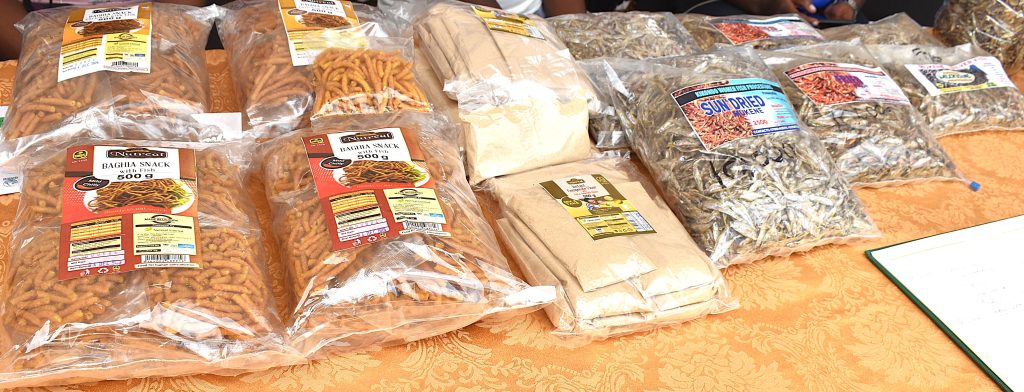
National Fisheries and Aquaculture Forum
A key highlight of the festival was the National Fisheries and Aquaculture Forum, themed “Promoting Sustainable Fisheries and Aquaculture through Ethical and Inclusive Blue Economy Practices.” The forum featured panel discussions on:
- Aligning Uganda’s Blue Economy with global and regional fisheries management frameworks.
- Adoption of climate-smart technologies in fisheries and aquaculture.
- Integration of business strategies and human rights principles into the fisheries and aquaculture value chain.
- Sustainable development of the fisheries and aquaculture sector.
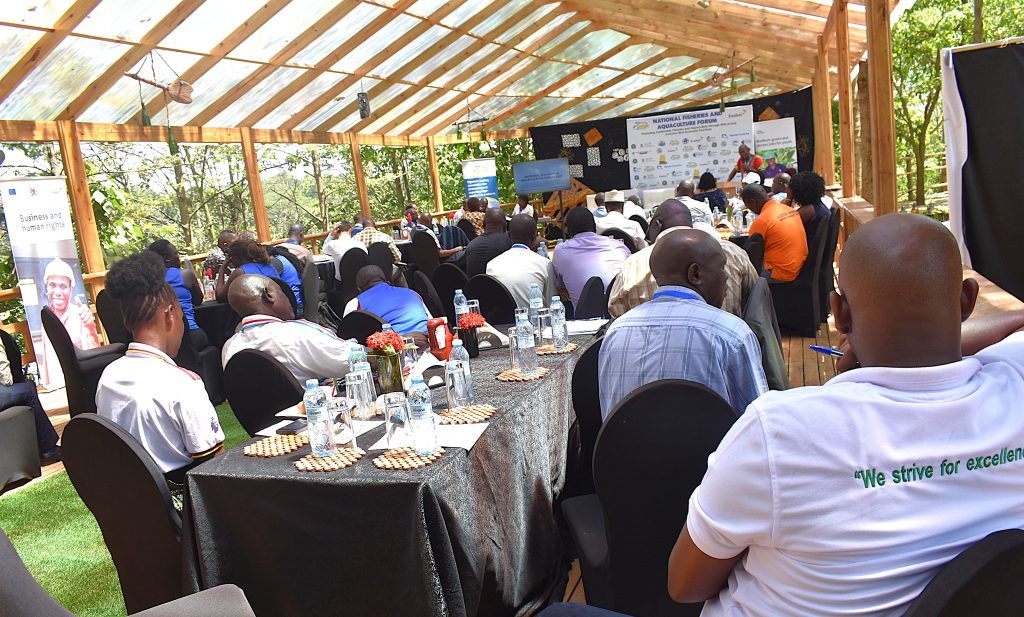
Participants emphasized the importance of strengthening value chain governance, scaling up innovations, and aligning initiatives with youth employment opportunities.
Delivering the keynote address, Mr. Richard Ogutu-Ohwayo, Coordinator at African Lakes Network and Independent Researcher, highlighted the urgent need to address “dirty fish” corruption, improve fisheries resource management through effective policies, and increase human resource capacity within the sector. Dr. Odongokara Konstantine, a Research and Policy Expert, emphasized domesticating international policies into Uganda’s aquaculture practices and building stakeholders’ capacity to access regional and global opportunities.
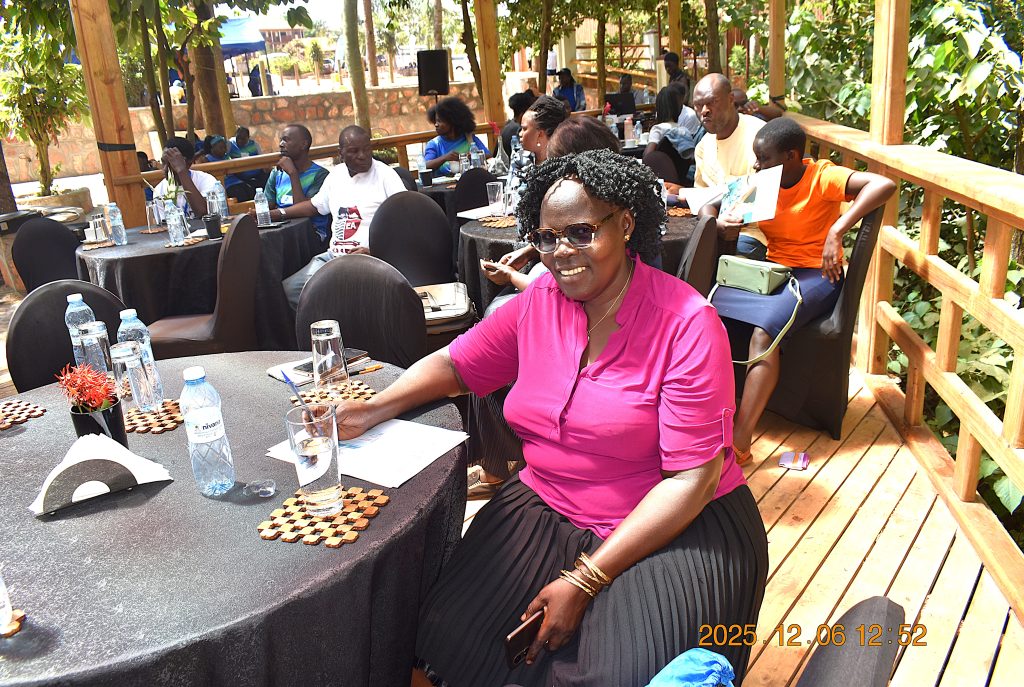
NutriFishPlus Project Participation in the Festival
The NutriFishPlus Project team, along with students from CoNAS participated in the 7th edition of the Jinja Fish Festival on 6th and 7th December 2025. Led by Ms. Nelly Badaru, Gender Expert on the Project and Ms. Juliet Ogubi Nafula, PhD student in the Department of Zoology, Entomology, and Fisheries Sciences at CoNAS, the team showcased products developed under the project and educated participants on the nutritional benefits of small pelagic fishes.
In its first phase, titled NutriFish, Makerere University researchers, led by Dr. Jackson Efitre, in collaboration with the National Fisheries Resources Research Institute (NaFIRRI – NARO), NUTREAL Limited, and McGill University, Canada, developed five high-value nutritious products, including baby food, sauce, maize meal, snacks, and seasoning, using Mukene (silverfish). The team also published a Mukene recipe book, containing 16 recipes rich in protein, calcium, zinc, and iron.
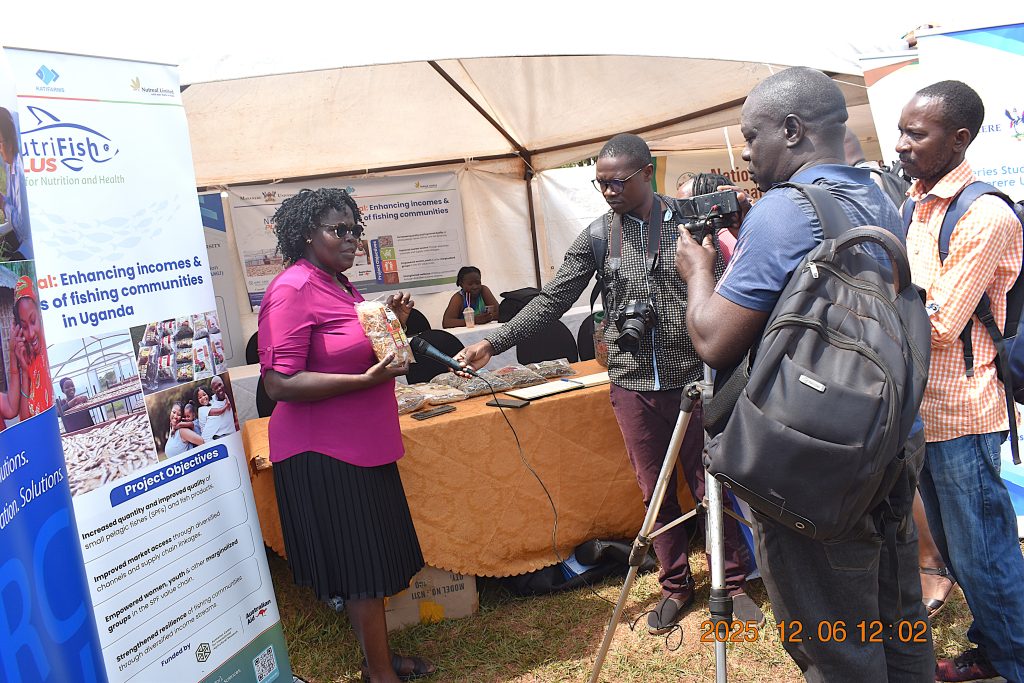
Through the project, fishers gained access to loans for purchasing boats and fish containers that improve hygiene and product quality. Two enterprise fishing groups, with over 70 boats, were established to ensure consistent supply and standards. Researchers also developed the eCAS system, an application for tracking fish catches. By September 2022, 8,960 catch records had been transmitted through the system, which is now used by over 200 stakeholders, including the Directorate of Fisheries Resources and the Fisheries Protection Unit, helping prevent overfishing.

Other achievements registered under the project included the development of solar tent driers – greenhouse-like structures that reduce the risk of contamination and provide clean and efficient storage and drying, especially during the wet season subsequently reducing post-harvest losses. The project conducted awareness training for 326 people (200 women) to reduce gender inequalities. As a result, domestic violence dropped by 30%, and the number of women in the fish value chain increased. The project also trained eight Graduate students, who have gained valuable skills and knowledge thus boosting critical human resource needs in the fisheries sector.
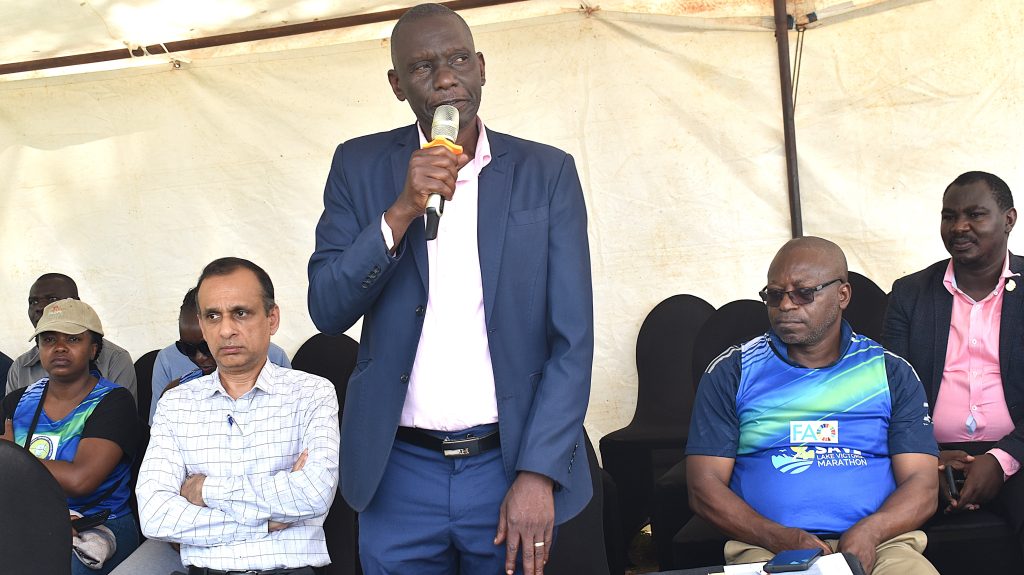
Other exhibitors at the festival included (NaFIRRI – NARO), FAO, INNOECOFOOD Project at Makerere University, the International University of East Africa, Busitema University, SEETA University (Science, Environment, Engineering, Technology, and Agriculture), Yalelo Uganda, and Preventive Care International, all showcasing emerging technologies and innovations in fisheries.
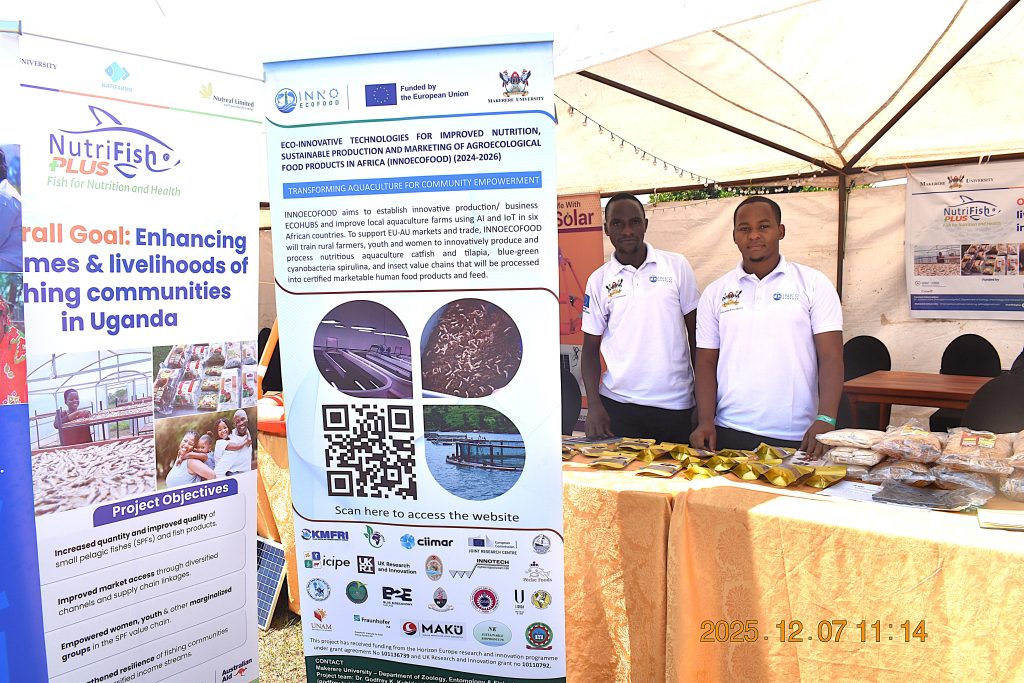
NutriFishPlus Phase II
Funded by the International Development Research Centre (IDRC) and the Australian Centre for International Agricultural Research (ACIAR) under CultiAF2, the NutriFishPlus Project aims to scale up Phase I activities to further enhance incomes and livelihoods of Uganda’s fishing communities.
Launched on 28th October 2025, the 32-month project will run until March 2028. Its objectives include:
- Scaling up sustainable fishing technologies, including solar tent driers and raised racks, to reach new communities.
- Strengthening market access and supply chain linkages for high-quality fish and fish-based products.
- Empowering women and vulnerable groups through diversified income-generating activities.

Implemented by the Department of Zoology, Entomology, and Fisheries Sciences at Makerere University, in collaboration with Nutreal Ltd and Kati Farms Ltd, the project is led by Dr. Jackson Efitre (Principal Investigator).
Expected outcomes include:
- Improved livelihoods and incomes for marginalized fishing groups, especially women and youth.
- Better health and nutrition through diversified, market-driven fish products.
- Sustainable fish processing and marketing models replicable across Uganda and the East African region.
- Enhanced participation of women and youth in decision-making and benefit-sharing within the Small Pelagic Fishes (SPFs) value chain.
- Strengthened community resilience and ecosystem health through participatory approaches.
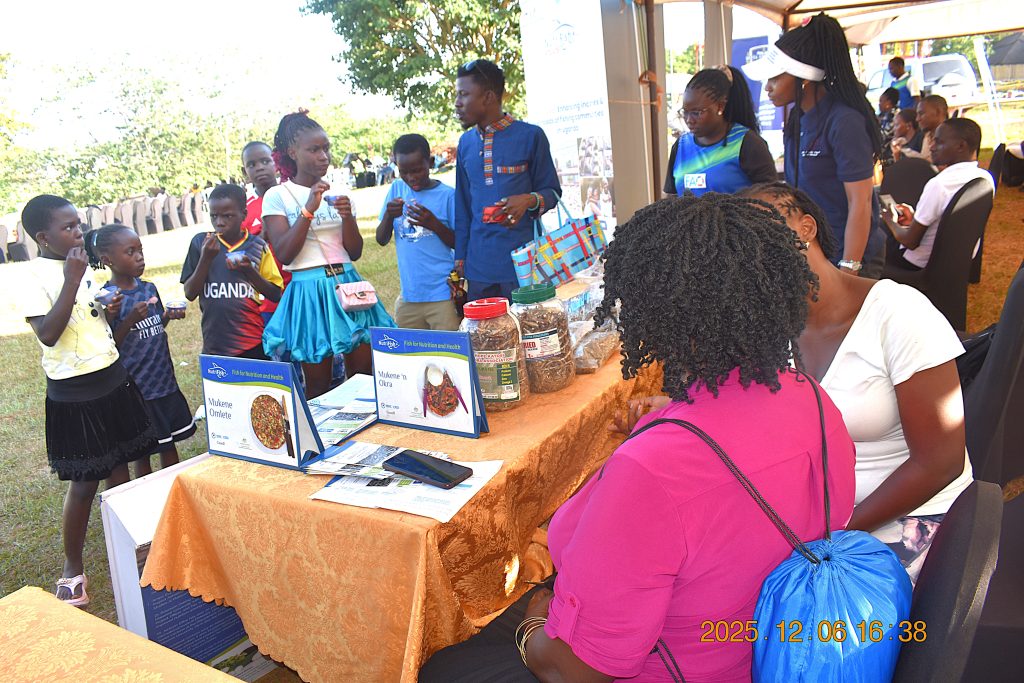
Project activities will be conducted at five landing sites around Lakes Victoria, Kyoga, and Albert: Katosi and Kikondo (Mukono and Buikwe districts), Bangaladesh and Kayago (Amolatar District), and Dei (Pakwach District).
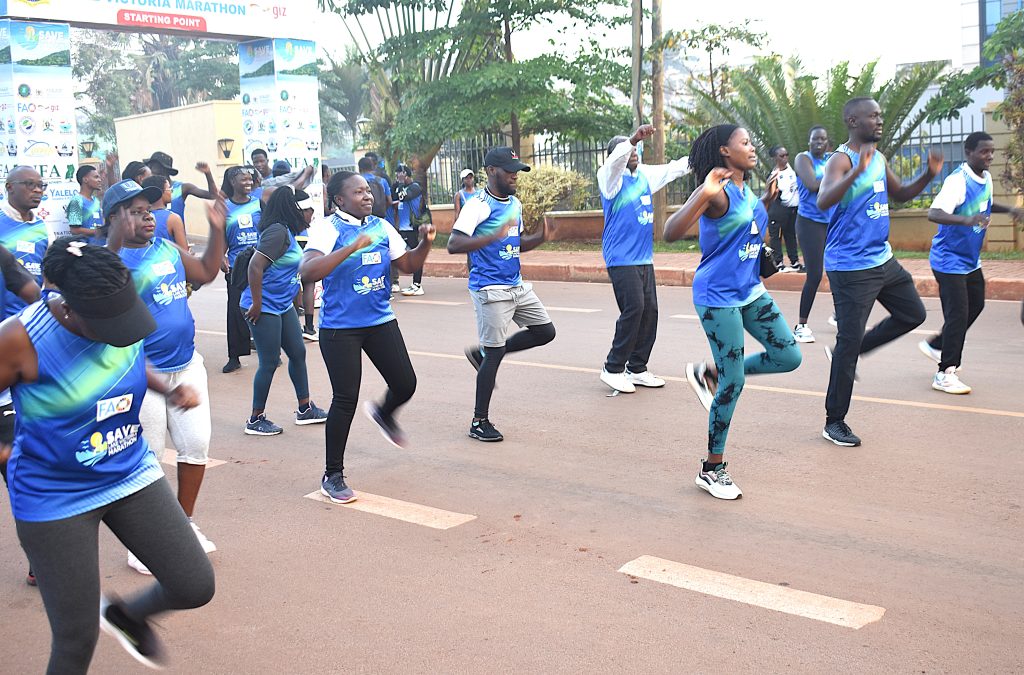
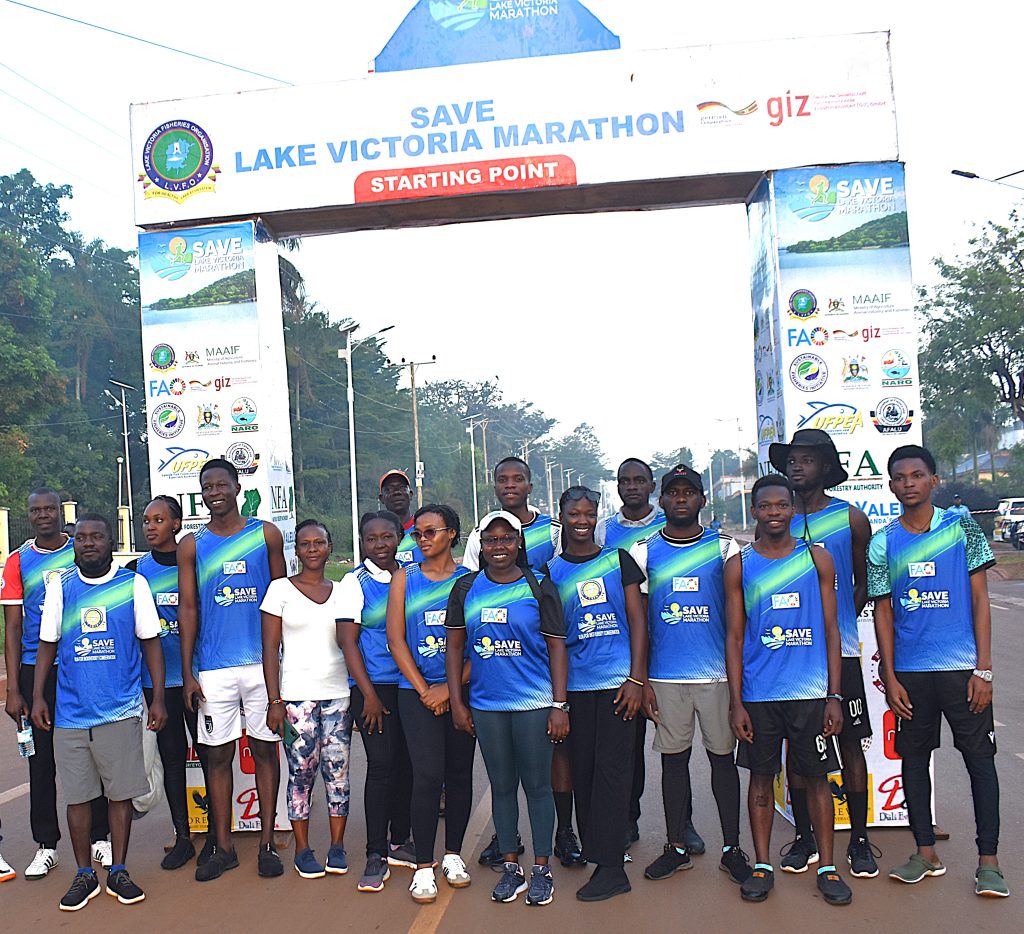
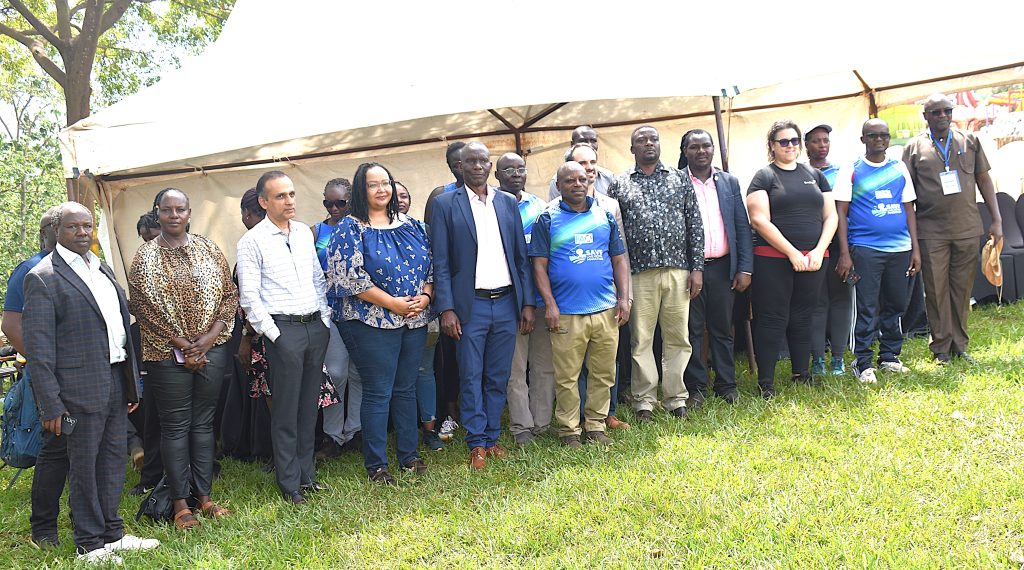
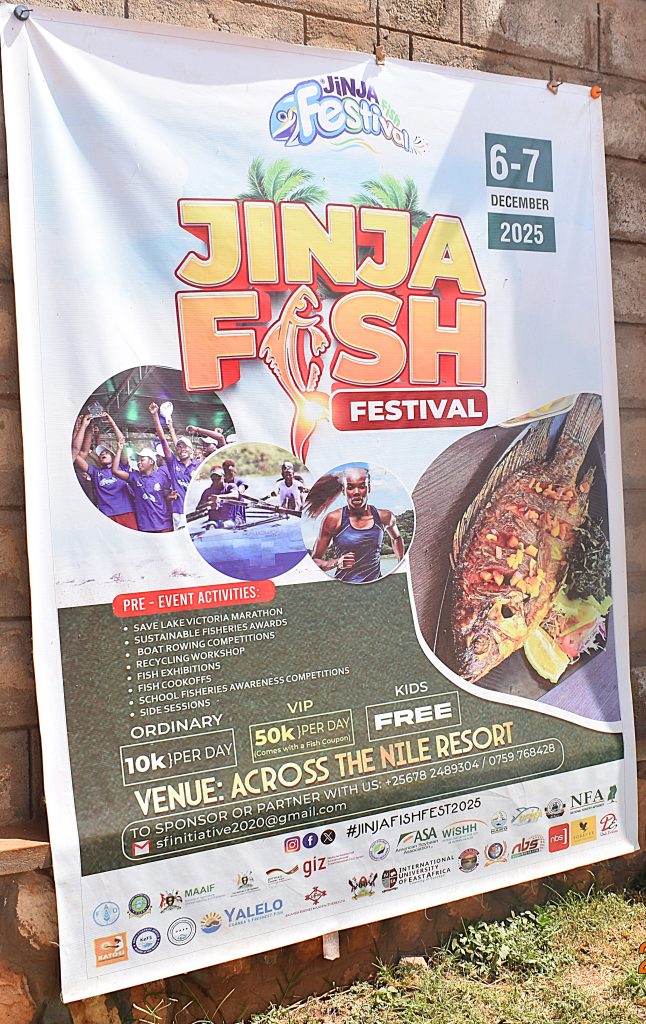
Natural Sciences
Mak-CoNAS Launches NutriFishPlus Project
Published
2 months agoon
October 30, 2025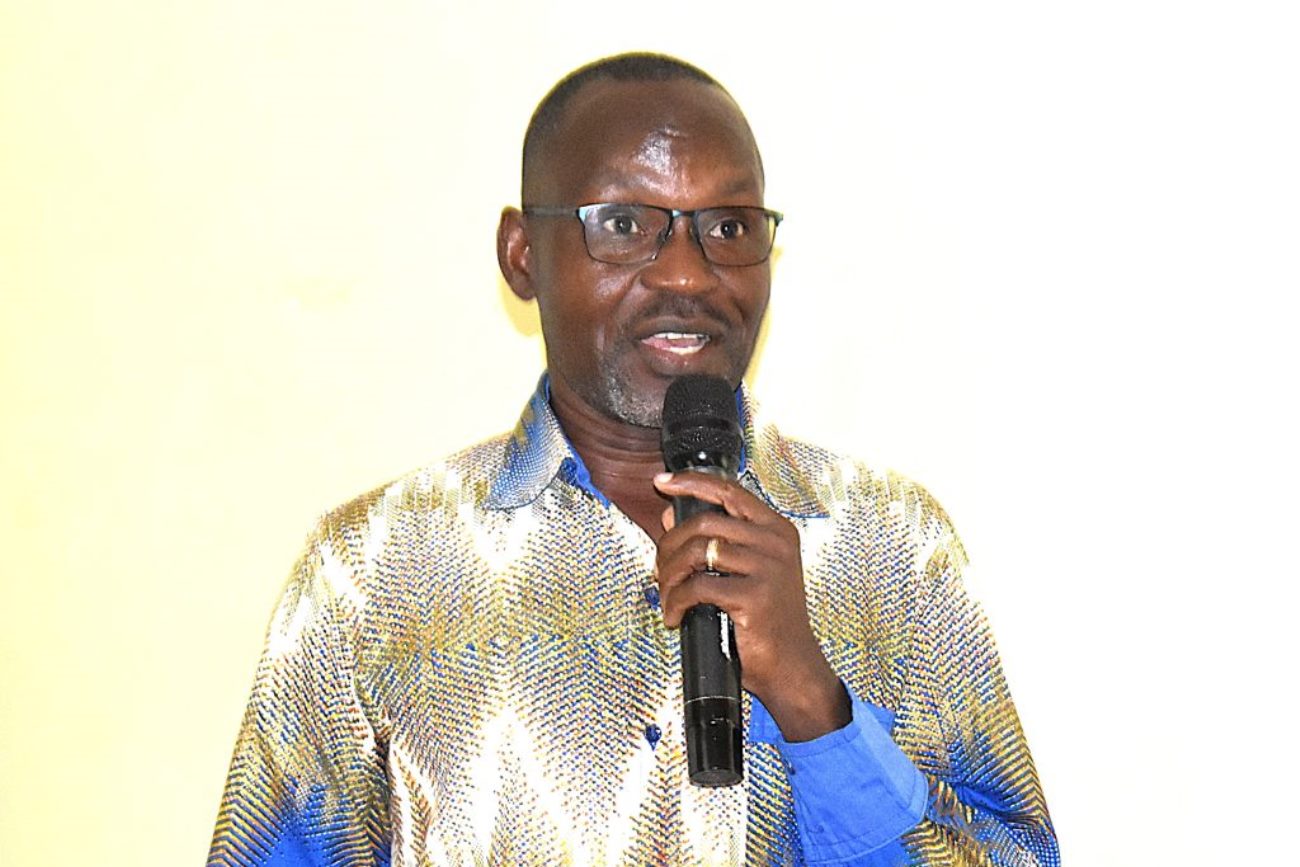
*****The project was officially launched on 28th October 2025, followed by planning meetings on 29th and 30th. It will be implemented at landing sites around Lakes Victoria, Kyoga and Albert.
Following the successful implementation of the NutriFish Project ( 2019-2023), Makerere University has been awarded a new grant worth about UGX2 Billion to expand activities and deepen community impact through the NutriFishPlus Project.
Funded by the International Development Research Centre (IDRC) and the Australian Centre for International Agricultural Research (ACIAR) under the Cultivate Africa’s Future Fund Phase II (CultiAF2), the NutriFishPlus Project seeks to enhance the incomes and livelihoods of fishing communities in Uganda.
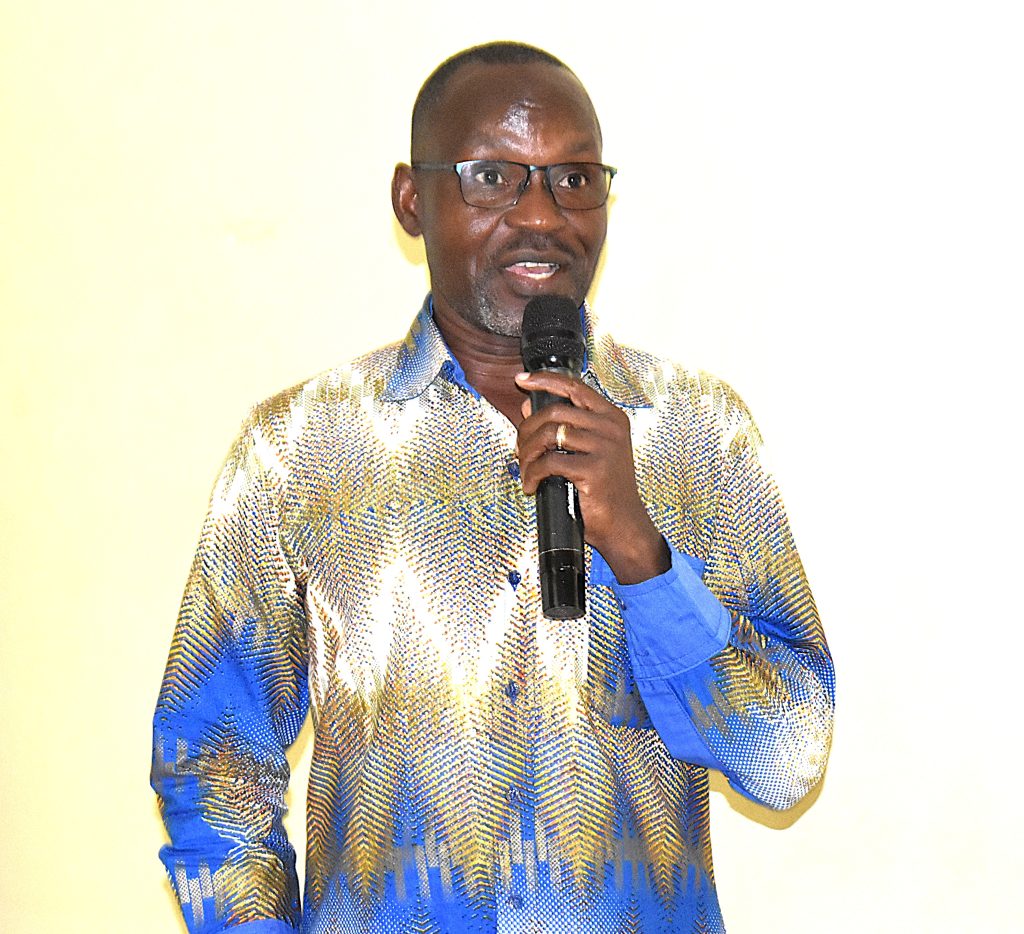
The project was officially launched on 28th October 2025 by the Ag. Deputy Vice Chancellor (Finance and Administration) at Makerere University, Prof. Winston Tumps Ireeta. Building on the achievements of phase one, NutriFishPlus will focus on:
- Scaling up the use of improved and sustainable fishing technologies, including solar tent driers and raised racks, to reach new communities across Uganda.
- Enhancing market access and strengthening supply chain linkages for high-quality fish and fish-based products.
- Empowering women and other vulnerable groups and strengthening community resilience through diversified income-generating activities.
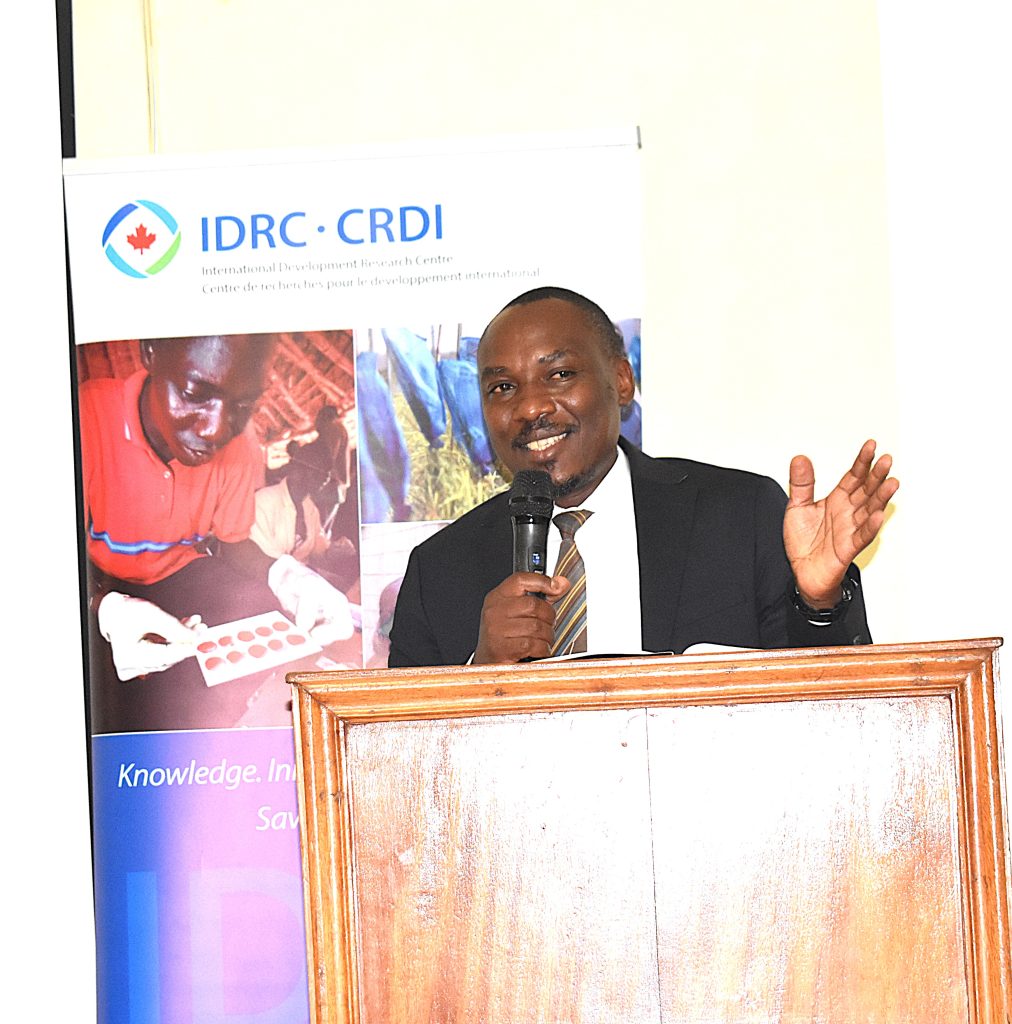
The project is expected to deliver the following outcomes:
- Improved incomes and livelihoods for the marginalized fishing groups, particularly women and youth.
- Better health and nutrition outcomes through the development of diversified, market-embedded fish products.
- Establishment of sustainable fish processing and marketing models that can be replicated across Uganda and the East African region.
- Improved participation of women and youth in decision-making and benefit-sharing within the Small Pelagic Fishes (SPFs) value chain.
- Enhanced socioeconomic conditions and ecosystem health through participatory and scalable approaches.
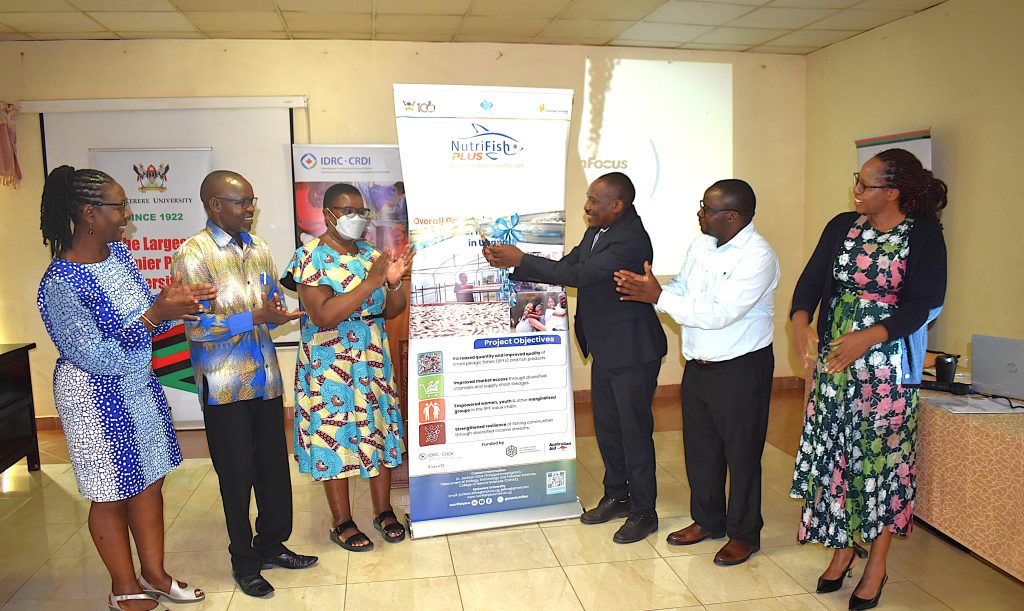
The project will run from September 2025 to March 2028 and will be implemented by the Department of Zoology, Entomology, and Fisheries Sciences at Makerere University, in collaboration with two private companies (Nutreal Ltd and Kati Farms Ltd) under a public-private partnership. Project activities will be carried out at five landing sites around Lakes Victoria, Kyoga and Albert. These include Katosi and Kikondo landing sites in Mukono and Buikwe districts respectively, Bangaladesh and Kayago landing sites in Amolatar District, and Dei landing site in Pakwach District. The project will be coordinated by Dr Jackson Efitre, Senior Lecturer at the Department of Zoology, Entomology, and Fisheries Sciences at Makerere.
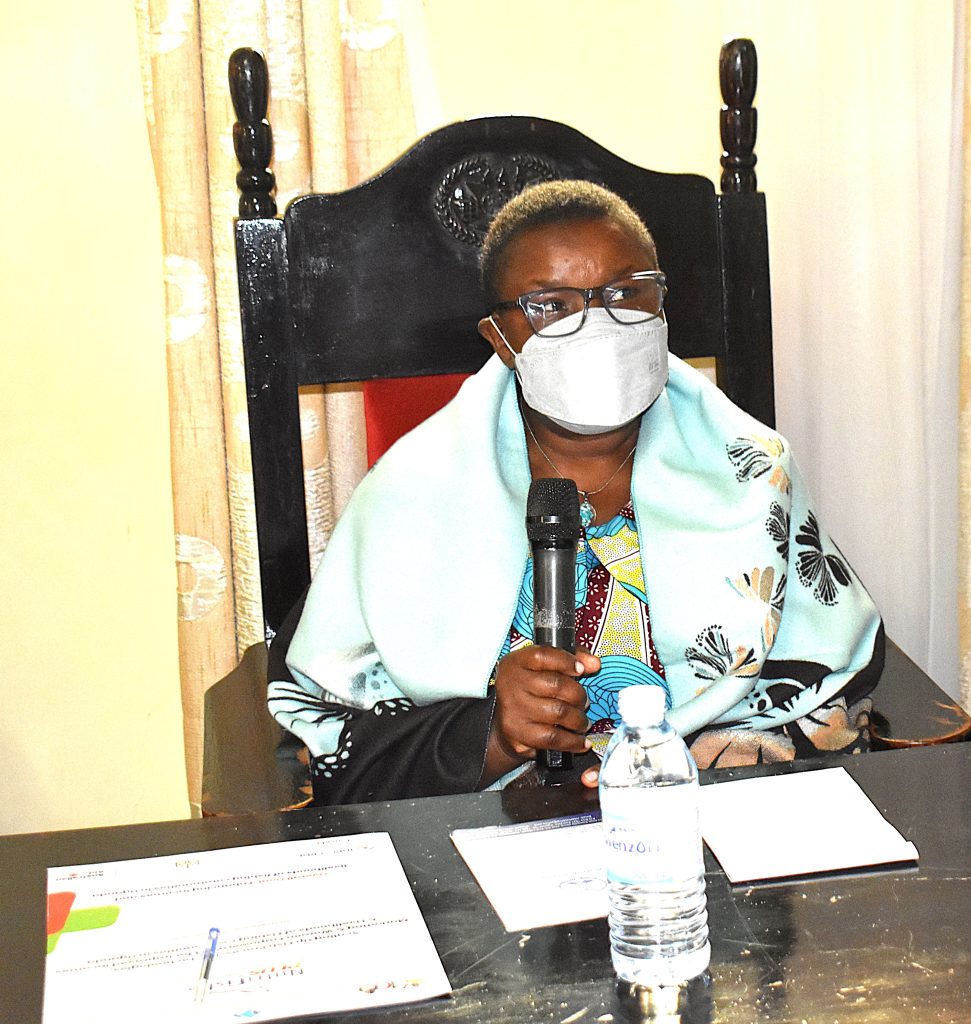
Inception and planning meetings
The NutriFishPlus Project team convened a three-day stakeholder engagement from 28th to 30th October 2025 to officially launch the project and collaboratively develop an implementation plan.
The workshop brought together a wide range of participants, including government representatives, researchers, private sector actors, and development partners. The primary objective was to foster a shared understanding of the project’s overarching goals, and design strategic pathways for achieving sustainable scaling and impact.
Discussions focused on deepening understanding of the scaling journey, and the interconnections among the different work packages and their respective pathways to scale. Participants explored how adaptive and transformative approaches can be integrated into the project’s dynamic monitoring, evaluation and learning (MEL) framework.
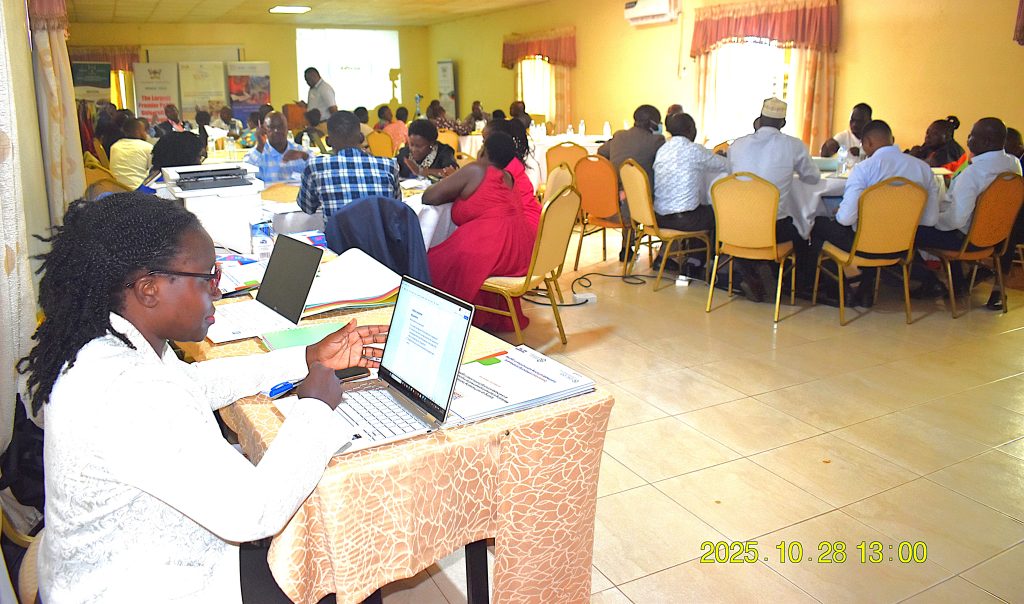
The team also reviewed the existing outputs and outcomes to identify key evidence that can inform adaptive monitoring. Through collaborative dialogue, stakeholders worked to identify appropriate indicators and progress markers that reflect the project’s adaptive learning and scaling dimensions, ensuring alignment with both the project objectives and national development priorities.
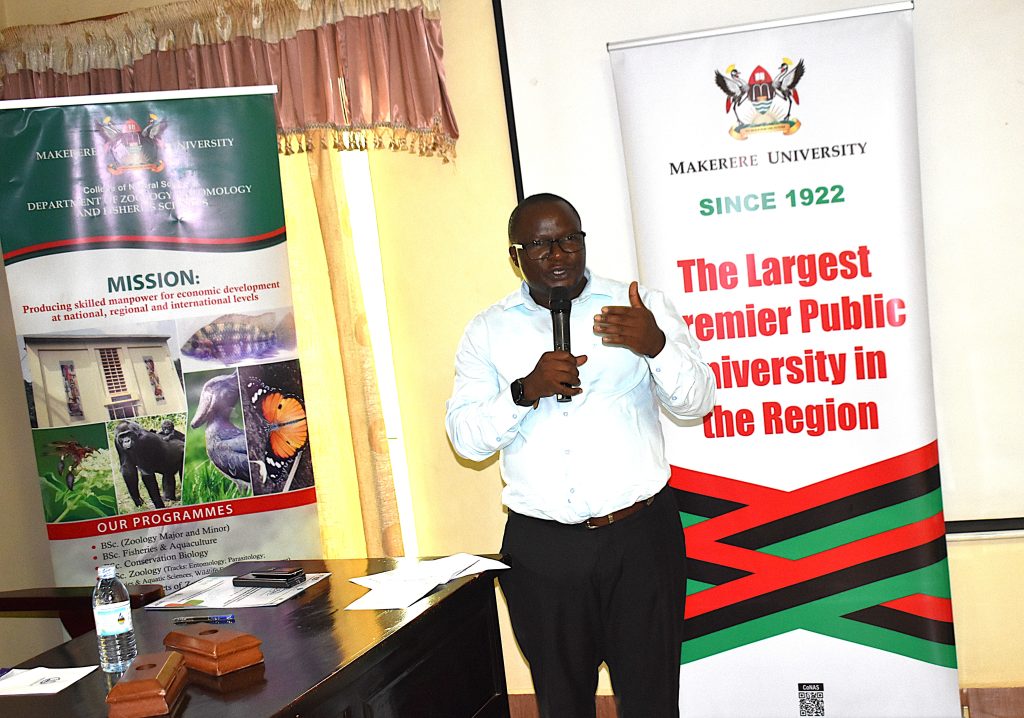
A major outcome of the workshop was the joint development of a detailed implementation plan for the project’s four interlinked work packages, which aim to:
- Enhance nutrition and health outcomes among vulnerable groups through the diversification of fish products and market innovations;
- Promote alternative and resilient livelihoods within small-scale fisheries and related value chains;
- Advance inclusivity and participation of marginalized groups, particularly women and youth in the Small Pelagic Fishes value chain through policy reform, advocacy, and enforcement; and
- Strengthen fish processing technologies and post-harvest management practices to improve food safety, quality, and value addition.
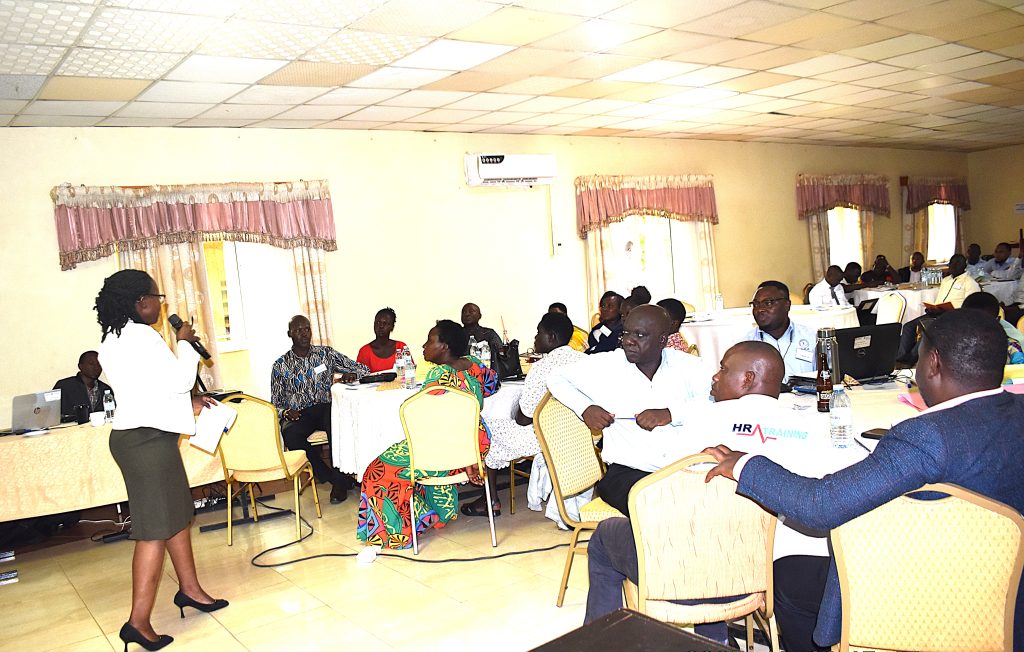
Overall, the inception workshop provided a strong foundation for coordinated implementation of the project, and established a clear roadmap for achieving the NutriFishPlus vision of improving nutrition, livelihoods, and sustainability through fisheries-based innovations.
Remarks by the University officials and development partners
Addressing the participants, the Guest of Honour, Prof. Winston Tumps Ireeta, Deputy Vice Chancellor in charge of Finance and Administration at Makerere University, commended the project team for the achievement. He also expressed gratitude to the project funders – the International Development Research Centre (IDRC) and the Australian Centre for International Agricultural Research (ACIAR) – for their steadfast support and dedication to improving the livelihoods of fishing communities in Uganda. “The NutriFishPlus project highlights Makerere University’s commitment to being a research-driven institution,” he said. “It also strengthens the University’s leadership in translating research into tangible, real-world outcomes that drive sustainable development and enhance public health.” On behalf of Makerere University Management, Prof. Ireeta assured continued support for the successful implementation of the project.
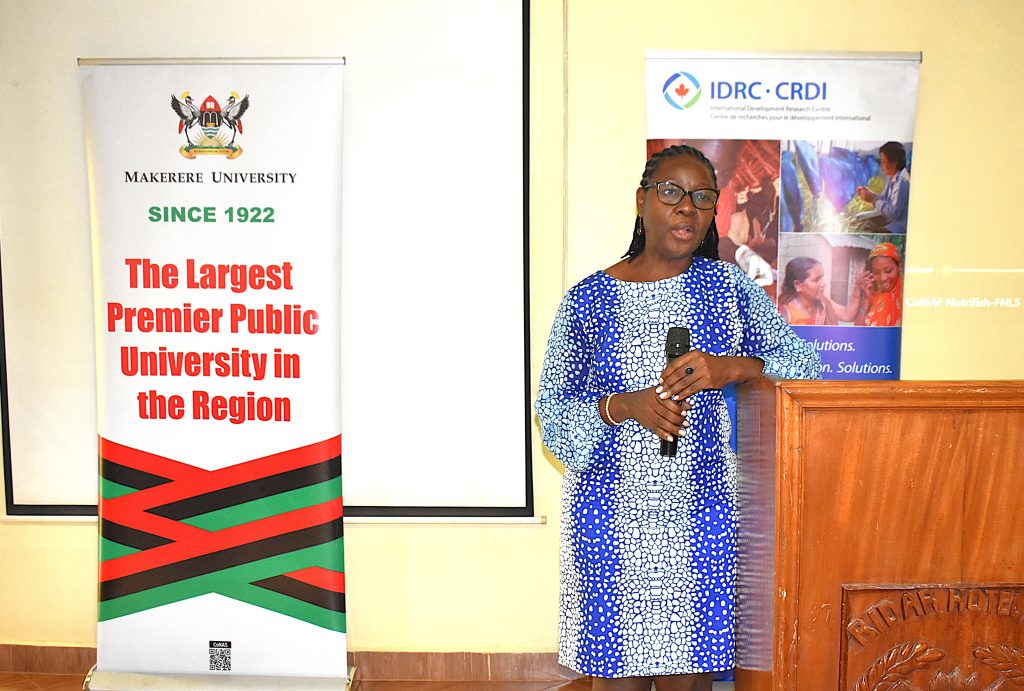
Dr. Edidah Lubega Ampaire, Senior Programme Specialist at the International Development Research Centre (IDRC), congratulated the project team upon securing the second grant. She emphasized that the IDRC is committed to supporting applied research that delivers tangible benefits to communities, noting that the team had demonstrated this through their success with the NutriFish project. “The IDRC invests in research that has the potential to transform livelihoods,” Dr. Ampaire said. “We look forward to seeing how the NutriFishPlus Project will build upon the achievements of the previous phase to scale up impact beyond the pilot phase. It is equally important that the project contributes to fostering meaningful policy reforms and strengthening enforcement mechanisms to ensure long-term, sustainable outcomes.”
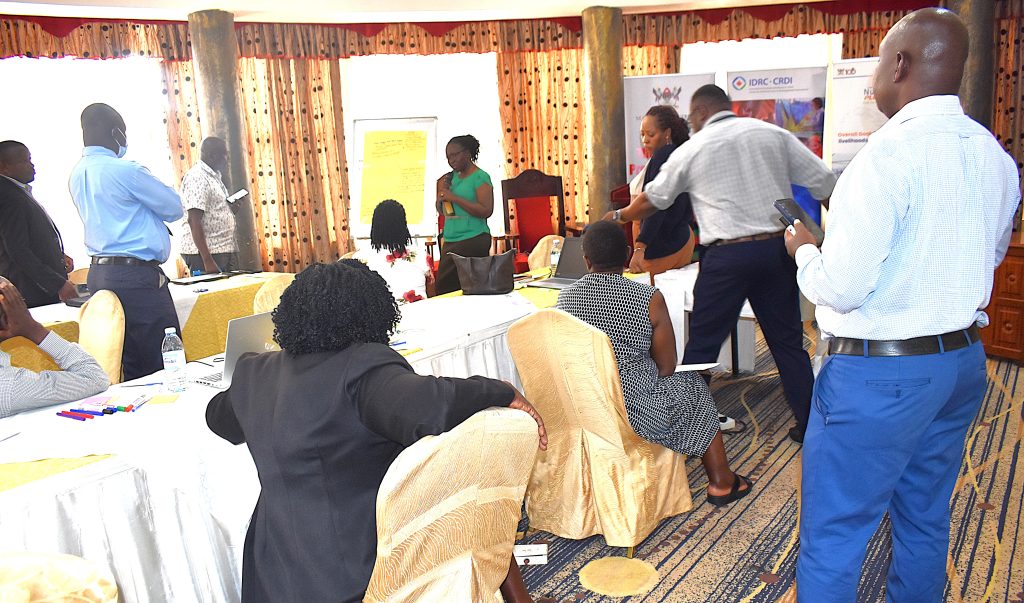
During the session, Ms. Dena Lomofsky, an experienced researcher and MEL expert, guided participants through the key components of scaling science. Her presentation explored the theoretical foundations, guiding principles, and strategic approaches required to transform research findings into scalable and sustainable solutions.
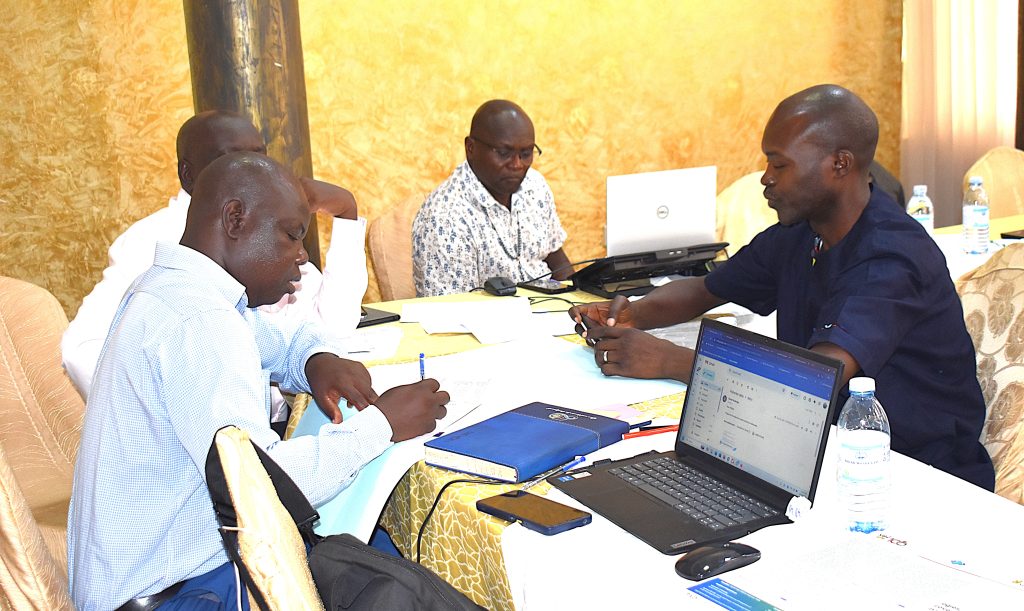
Briefing participants on their activities, Dr. Dorothy Nakimbugwe from Nutreal Ltd, a private company collaborating with the NutriFishPlus Project, underscored the crucial role of private sector involvement in research initiatives. She emphasized that engaging private enterprises not only enhances the practical application of research outcomes but also plays a pivotal role in scaling innovations and maximizing their impact.
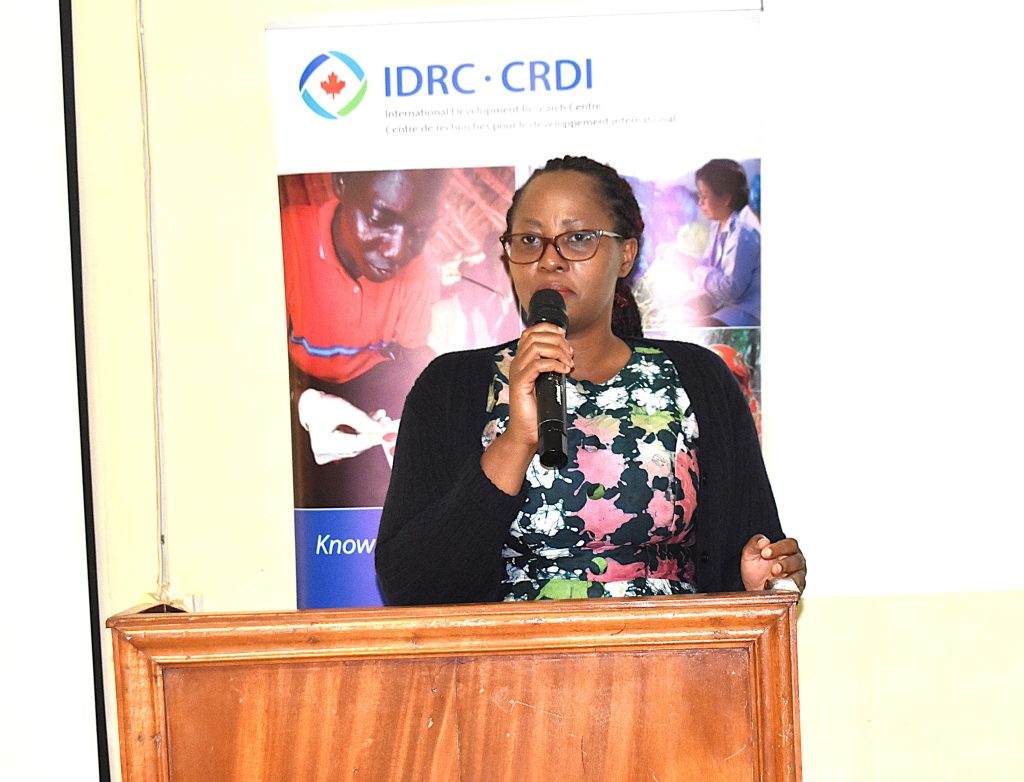
Ms. Lovin Kobusingye of Kati Farms Ltd expressed gratitude to the project team and funders for the initiative. “At Kati Farms, we are truly honored to be part of this journey. Our passion has always been to transform Uganda’s fisheries sector through value addition, innovation, and inclusive growth. The NutriFishPlus Project aligns perfectly with this mission, as it aims to improve the incomes and livelihoods of fishing communities through diverse interventions. As Kati Farms, our commitment is to ensure that the products developed under this project meet the highest quality standards and reach both local and international markets. Together, as partners, let us move forward with a shared vision, to make NutriFishPlus not just a research project, but a transformative movement that uplifts fishing communities, enhances nutrition, and promotes gender equality within and beyond our borders.”
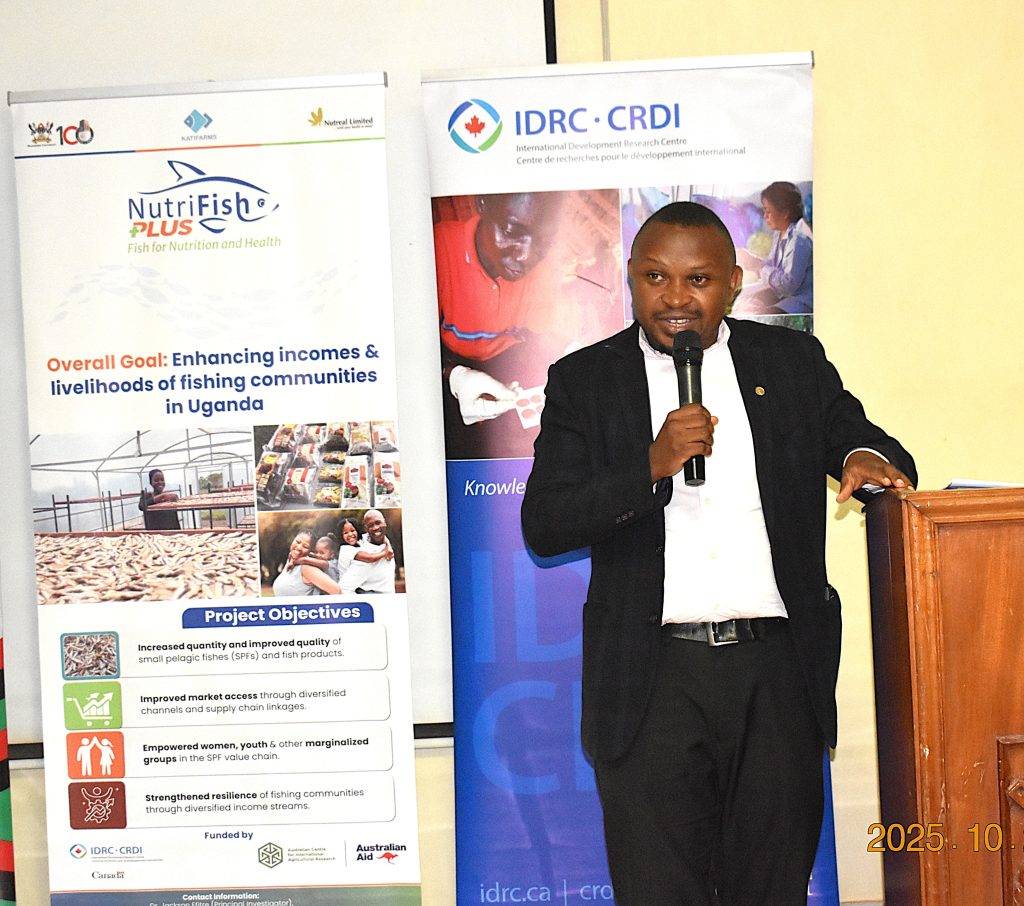
Mr. Isaac Kirabira from the Ministry of Agriculture, Animal Industry, and Fisheries expressed the Ministry’s commitment to supporting the project, emphasizing that empowering women, youth, and other vulnerable groups is essential not only for improving livelihoods but also for restoring dignity.
In his remarks, Dr. Godfrey Kawooya Kubiriza, Head of the Department of Zoology, Entomology, and Fisheries Sciences at Makerere University, equally appreciated the project team and the funders. “Our Department is proud to contribute to the NutriFishPlus Project. Initiatives of this nature provide a valuable platform for translating our research into practical solutions that reach communities, thereby creating meaningful and tangible impact.”
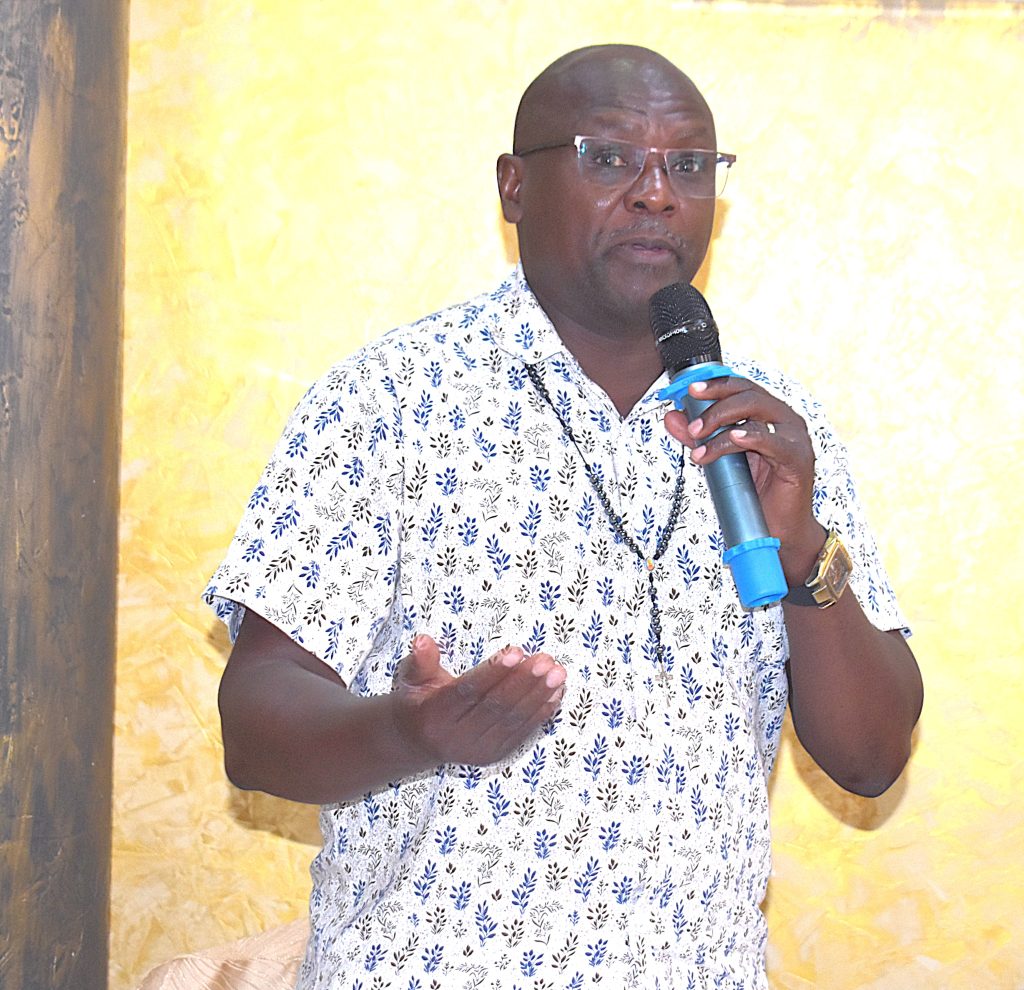
Achievements registered during Phase One
The achievements included:
- Establishing group savings schemes to improve access to capital by women and youth;
- Piloting solar tent dryers for processing silver fish (mukene), resulting in doubling of women’s incomes and tripling of the shelf-life to almost five months;
- Developing and test-marketing certified, nutrient-enriched fish products, including baby food, sauce and fortified maize meal;
- Conducting comprehensive social and behavioural change interventions, leading to increased women’s participation in profitable ventures and 30% reduction in domestic violence in intervention areas.
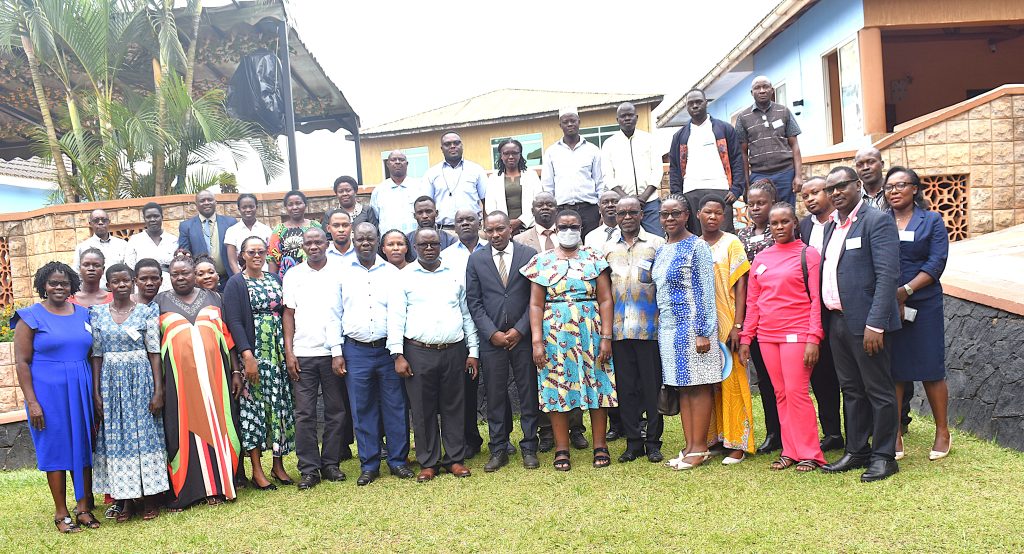
Link to the workshop pictorial: https://drive.google.com/drive/folders/1Wwd9kSsKpd6aZ6YrFL1uVveh2BSG36cV?usp=sharing
Natural Sciences
Mak-CoNAS Wins CAD 0.8 Million Grant to Scale-up Fish Processing Technologies & Empower Women in Uganda
Published
2 months agoon
October 27, 2025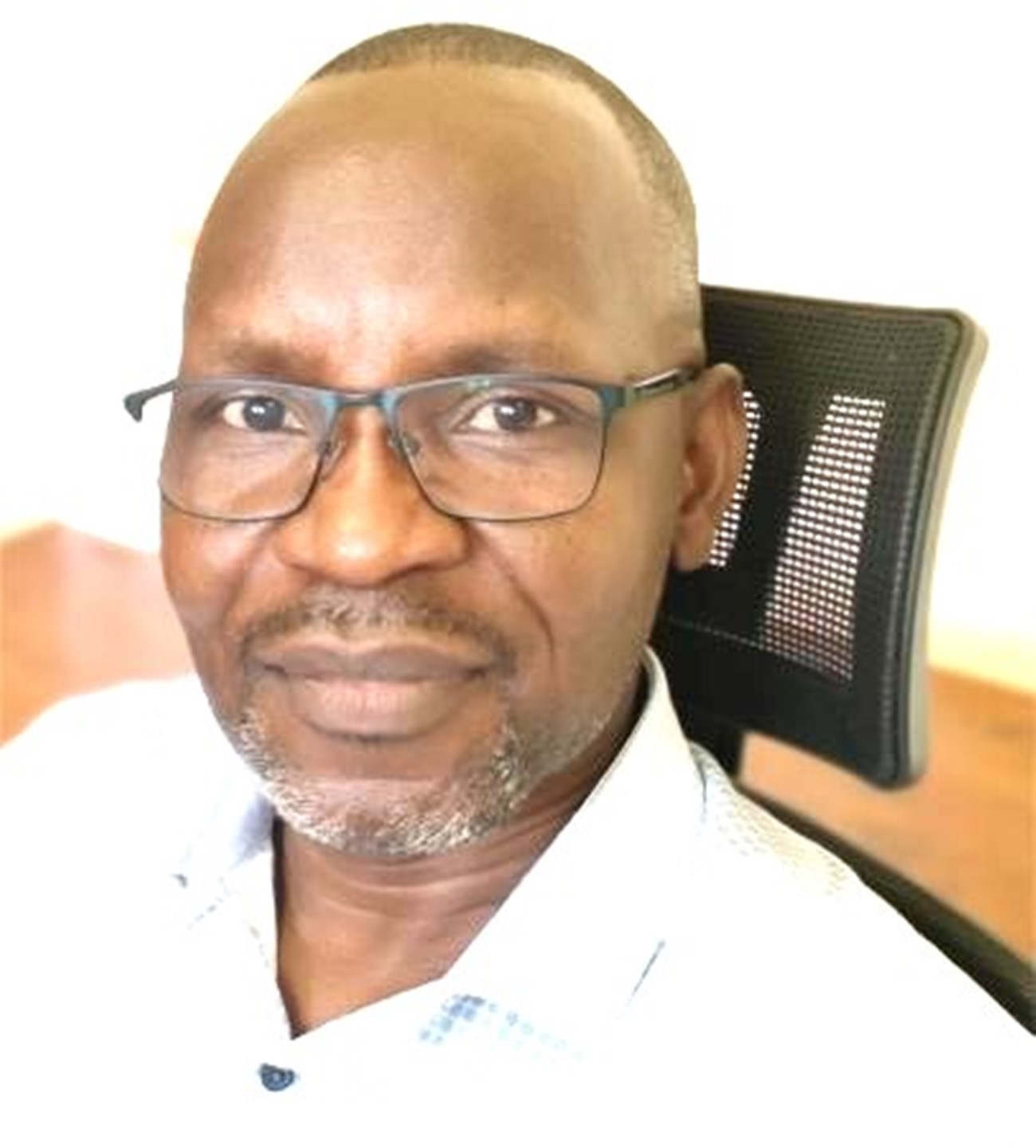
The College of Natural Sciences (CoNAS) at Makerere University has been awarded a highly competitive research grant worth CAD 0.8 million to implement the “NutriFishPLUS” project, which aims to scale up innovative fish processing technologies, improve market access, and empower women in Uganda’s fishing communities to boost incomes and livelihoods.
This project builds on the significant achievements of the previous ground-breaking NutriFish project (2019–2023), funded by the International Development Research Centre (IDRC) and the Australian Centre for International Agricultural Research (ACIAR) through the Cultivate Africa’s Future Fund Phase (CultiAF2). The achievements included: 1) establishing group savings schemes to improve access to capital by women and youth; 2) piloting solar tent dryers for processing silverfish (mukene), resulting in doubling of women’s incomes and tripling of the shelf-life to almost five months; 3) developing and test-marketing certified, nutrient enriched fish products, including baby food, sauce and fortified maize meal; 4) conducting comprehensive social and behavioural change interventions, leading to increased women’s participation in profitable ventures and 30% reduction in domestic violence in intervention areas. Despite these achievements, gaps still remain with regard to increasing production of high-quality Small Pelagic Fishes (SPFs) through adoption of solar tent dryers and raised drying racks; enhancing capacity of men, women and the youth in processing, packaging, branding and marketing; improving access to capital and lucrative markets for fish and fish products; and empowering women, youth and other marginalized groups in the small fish value chain; and strengthening resilience of fishing communities through diversified income streams.
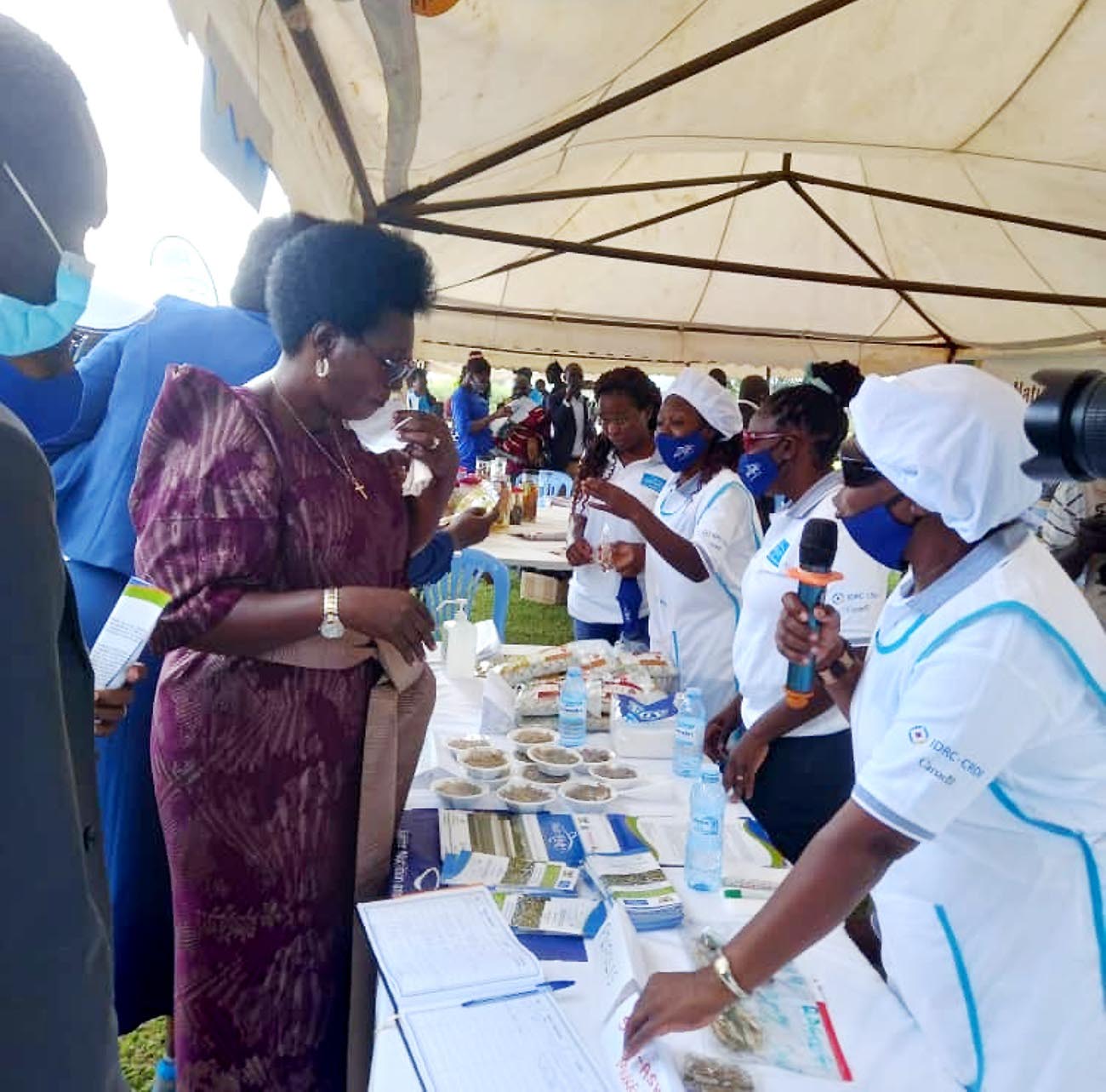
NutriFishPLUS will be implemented by the Department of Zoology, Entomology and Fisheries Sciences, CoNAS, in collaboration with two private companies (Kati Farms and Nutreal) through a public-private partnership. The Principal Investigator is Dr. Jackson Efitre and his team will focus on scaling-up the use of improved, sustainable fish processing technologies such as the solar Tent dryers and raised racks to new communities across Uganda; enhancing market access and supply chain linkages for high-quality fish and fish products; as well as deepening women’s empowerment and strengthening the resilience of fishing communities through diversified income streams. The project is expected to run for September 2025- March 2028. The expected outcomes include: enhanced incomes and livelihoods for marginalized fishing groups, particularly women and youth; improved health and nutrition for vulnerable groups through diversification of fish products that are embedded in the market with strong supply chain linkages; sustainable fish processing and marketing models that can be scaled across Uganda and the East African region; improved women and youth participation in decision making and control of benefits in the SPF value chains; and improved socioeconomic conditions and ecosystem health through participatory, scalable approaches.
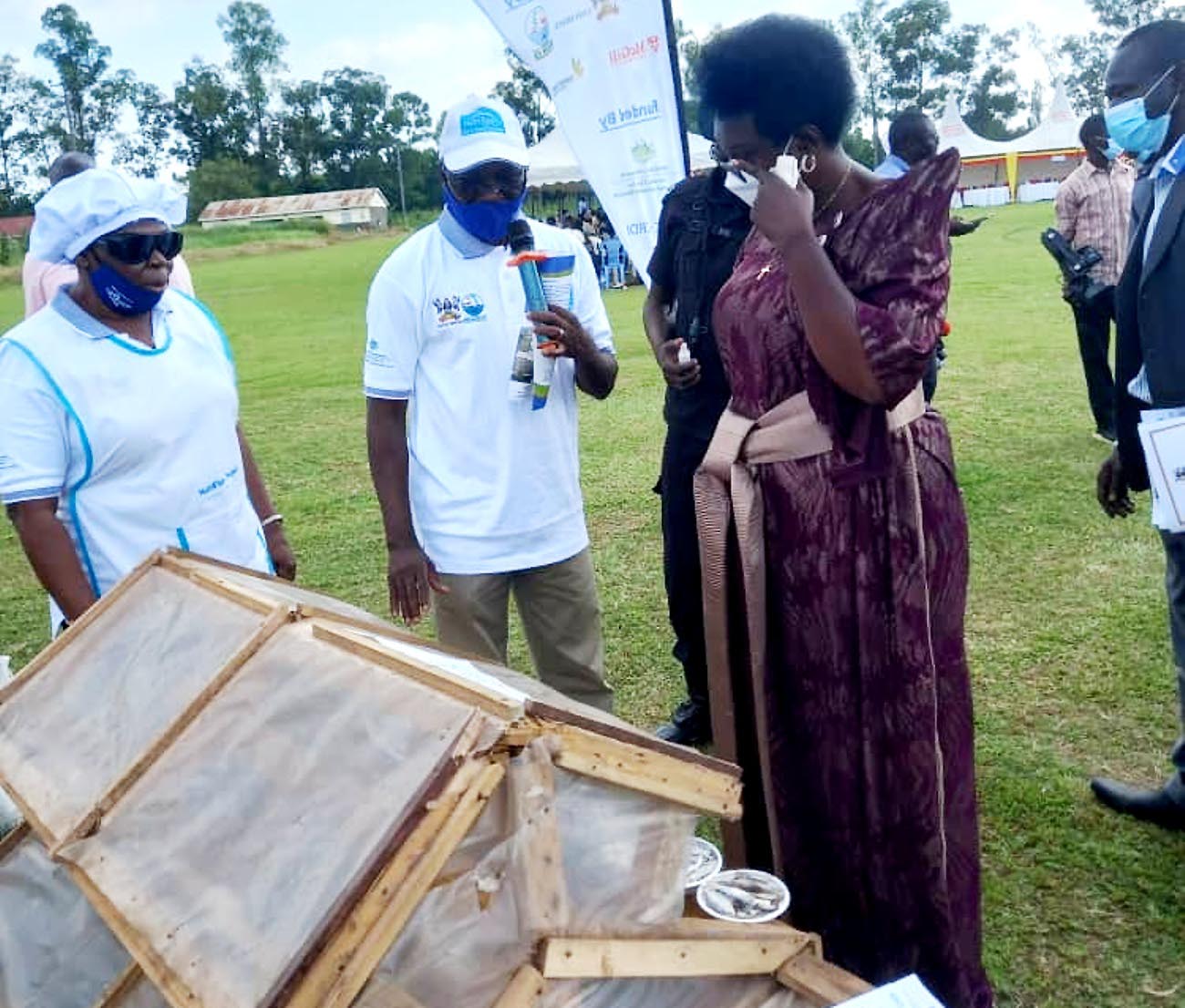
“Winning this competitive grant is an incredible opportunity for the team to solidify the achievements of the first phase as the funding enables us to move beyond research to embed these nutritional and technological solutions into the livelihoods of local communities,” said Dr. Efitre. “I am privileged to lead this impactful work on behalf of Makerere University. Scaling up these tested, climate-responsive technologies as well as empowering the women and youth will secure better nutrition and more sustainable livelihoods across fishing communities in Uganda.”
The project is set to be launched tomorrow, Tuesday, 28th October 2025 by the Acting Deputy Vice Chancellor, Finance and Administration and Principal, CoNAS, Prof. Winston Tumps Ireeta.
Please see below for details on the project.
Details on the previous project: https://news.mak.ac.ug/2023/03/nutrifish-project-registers-significant-achievements/
Trending
-
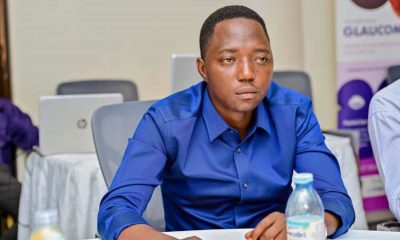
 General2 weeks ago
General2 weeks agoFrom Mastercard Foundation Scholar to Changemaker: Dr. Ekwaro Ronald’s Vision for Eye Health in Uganda
-

 General1 week ago
General1 week agoCall For Expression of Interest: WEE-DiFine Research Initiative
-

 Agriculture & Environment2 weeks ago
Agriculture & Environment2 weeks agoHow transformative education is shaping Africa’s next generation of innovators
-
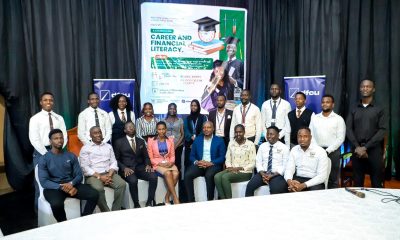
 General1 week ago
General1 week agoFrom Campus to Career: Makerere Advancement Office, 91st Guild and the DFCU Foundation Equip Students with Financial and Employability Skills
-
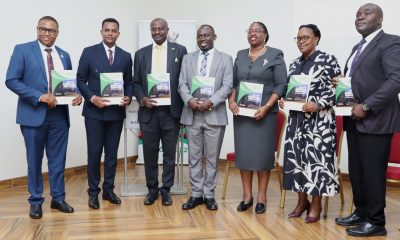
 Business & Management2 weeks ago
Business & Management2 weeks agoEfD-Mak, GRO Foundation & BoU Hold High-Level Roundtable on Green and SDG-Linked Financing
